I'm a Sleep Editor and These Are the Best Mattresses and Brands − Tried and Tested by our Expert Team
I've ranked and reviewed the best mattresses from top brands, including Saatva, Nectar, Winkbed, and more to suit every style of sleeper and size of budget

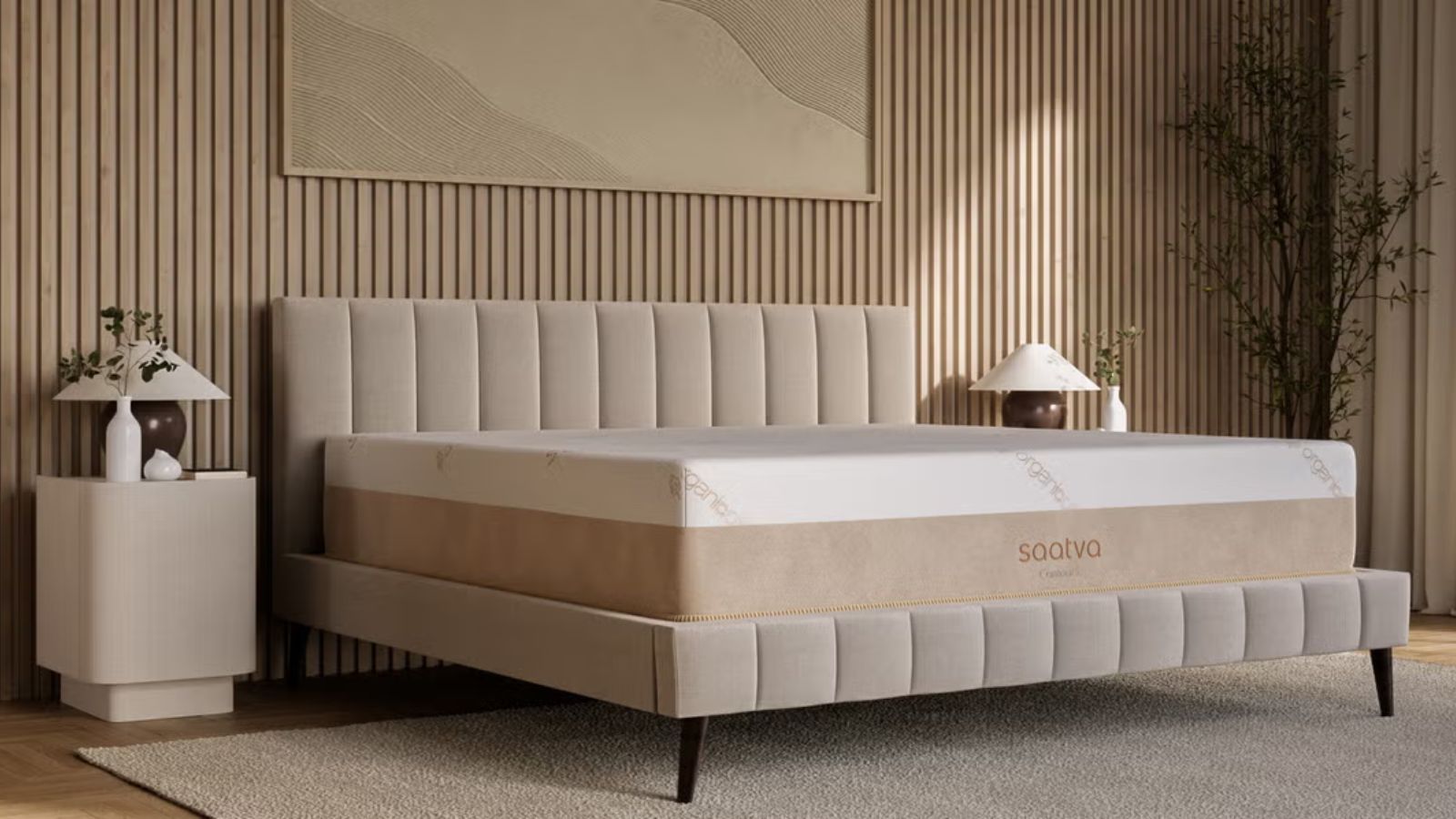
Finding the best mattress means balancing comfort, support, and your budget – but with such a vast array of models to choose from, you might find yourself overwhelmed by choice. That’s where I come in.
As Homes & Gardens’ Sleep Editor and in-house expert, I lead a team of reviewers who test best-brand mattresses across the US. Between us, we cover a range of ages, sleep positions, and body types, so we know first-hand which mattress will suit you – from memory foam and hybrid to innerspring and latex.
Together, we’ve spent years in the industry and hundreds of nights putting more than 30 mattresses from trusted brands through their paces. Every model is slept on for at least 30 nights before we publish our mattress reviews, testing for pressure relief, temperature regulation, edge support, and motion isolation – as well as practical details like delivery, trial periods, and overall value.
Our enduring favorite is the Saatva Classic Mattress, which combines the breathable support of an innerspring with the plush comfort of a pillow top. Still, no single mattress suits everyone – so take a look at my team's mini reviews below, and click through on each to full reviews to make the right choice first time. Want to explore by brand? I've listed out our tried-and-trusted best mattress brands below, too.
Best Mattress − 9 Tested Options at a Glance
Below, you'll find a bite-size summary of each mattress, outlining who it suits and the pros and cons. To learn more about a particular mattress, keep scrolling, or shortcut to that section by pressing 'read more below'.
There, I've listed the need-to-know specs, including the price, firmness, and size of each mattress, before diving into the details of our testing experience.
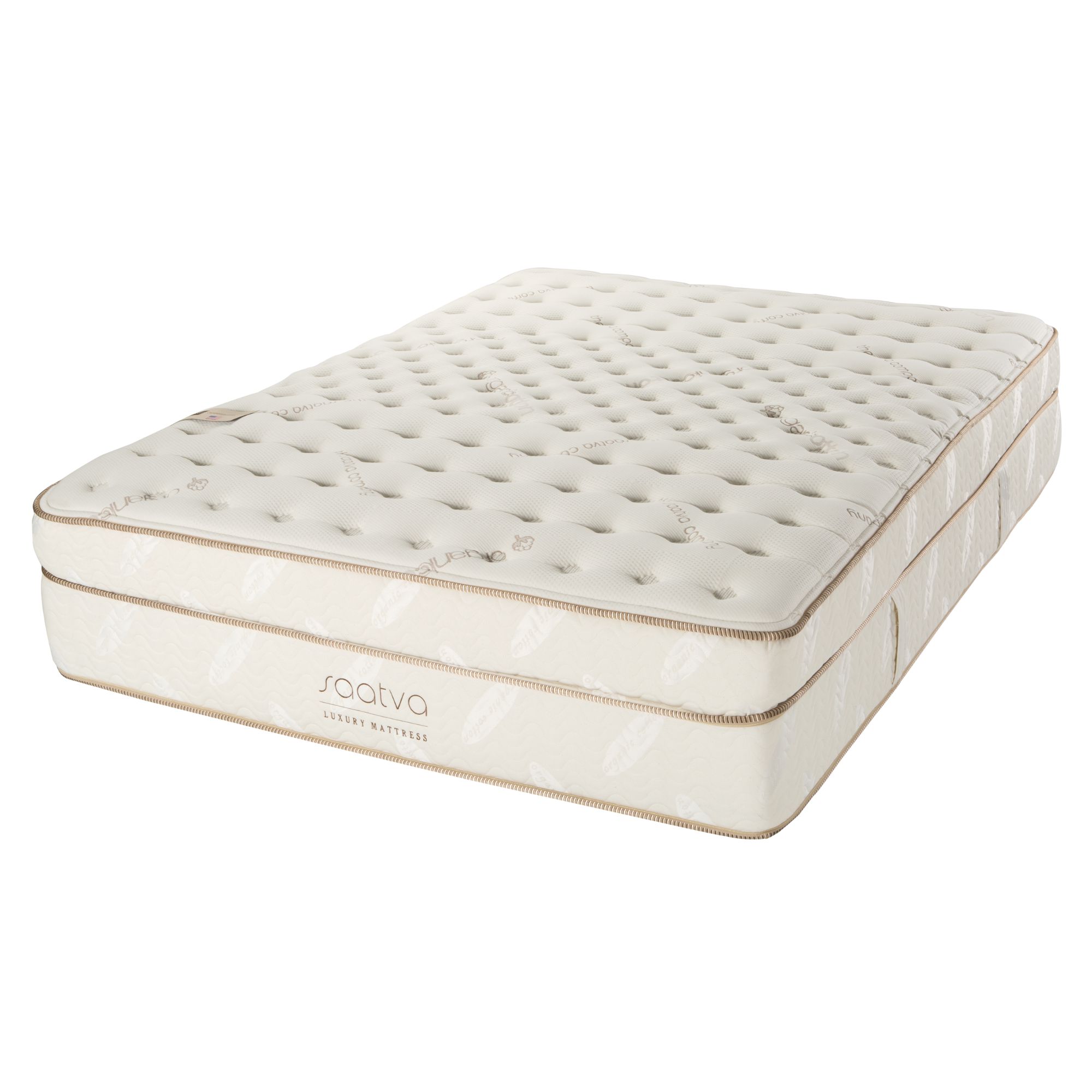
The best mattress overall
The Saatva Classic Mattress gets top scores across the board for pressure relief, motion isolation, and edge support. Whether you sleep hot or cool on your front, back, or side, you can sleep comfortably on the Saatva Classic.

The best mattress for back pain
This medium-firm mattress is soft enough to cushion your pressure points yet sufficiently supportive to keep your spine in line. The high-density foam is ultra-durable, made to mold to your body then spring back into shape.
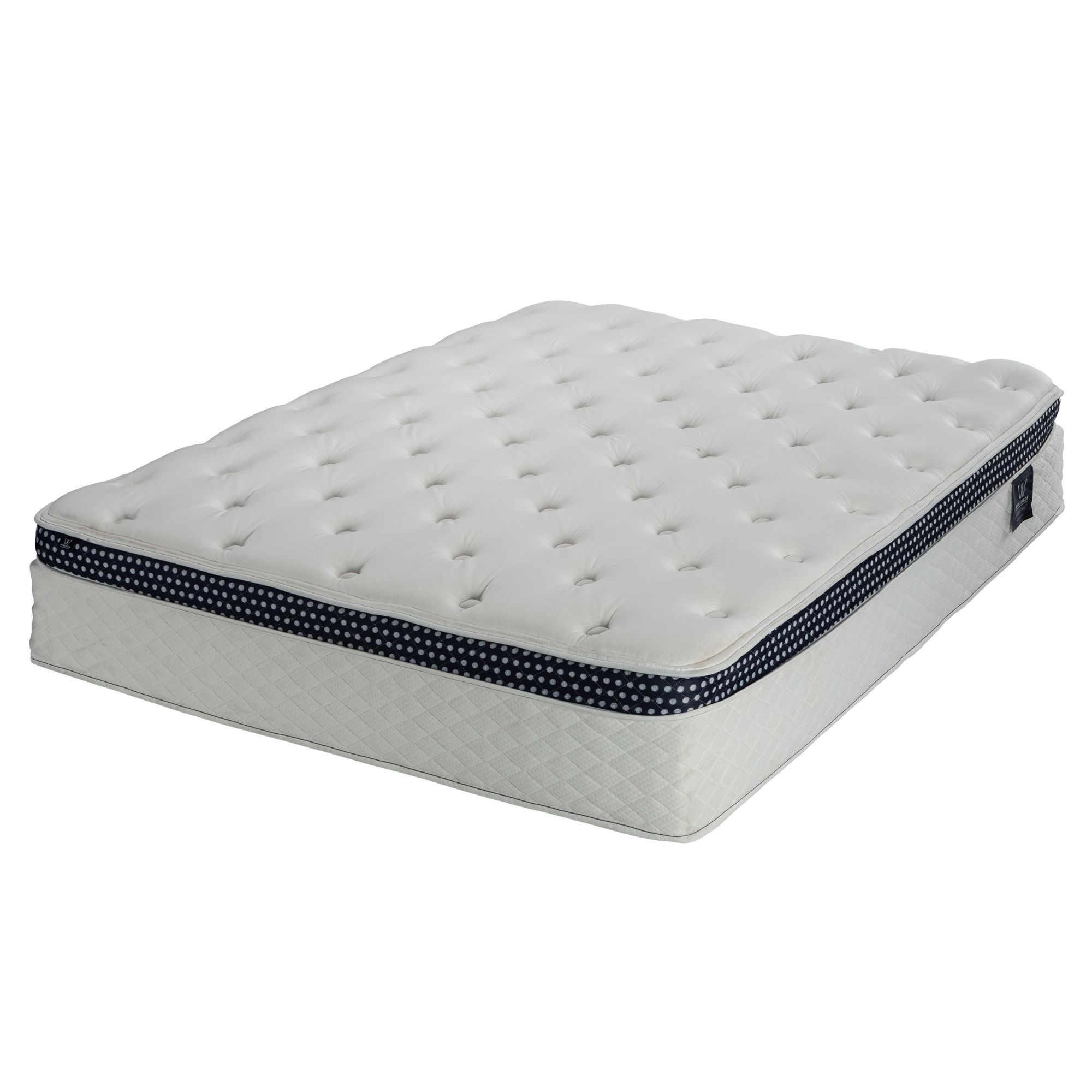
The best mattress for side sleepers
This hybrid mattress is lined with supportive steel springs to bear your weight and topped with a thick layer of memory foam to protect your hips, knees, neck, and shoulders. It's a great mattress, but it requires a lot of rotation to keep in good condition.
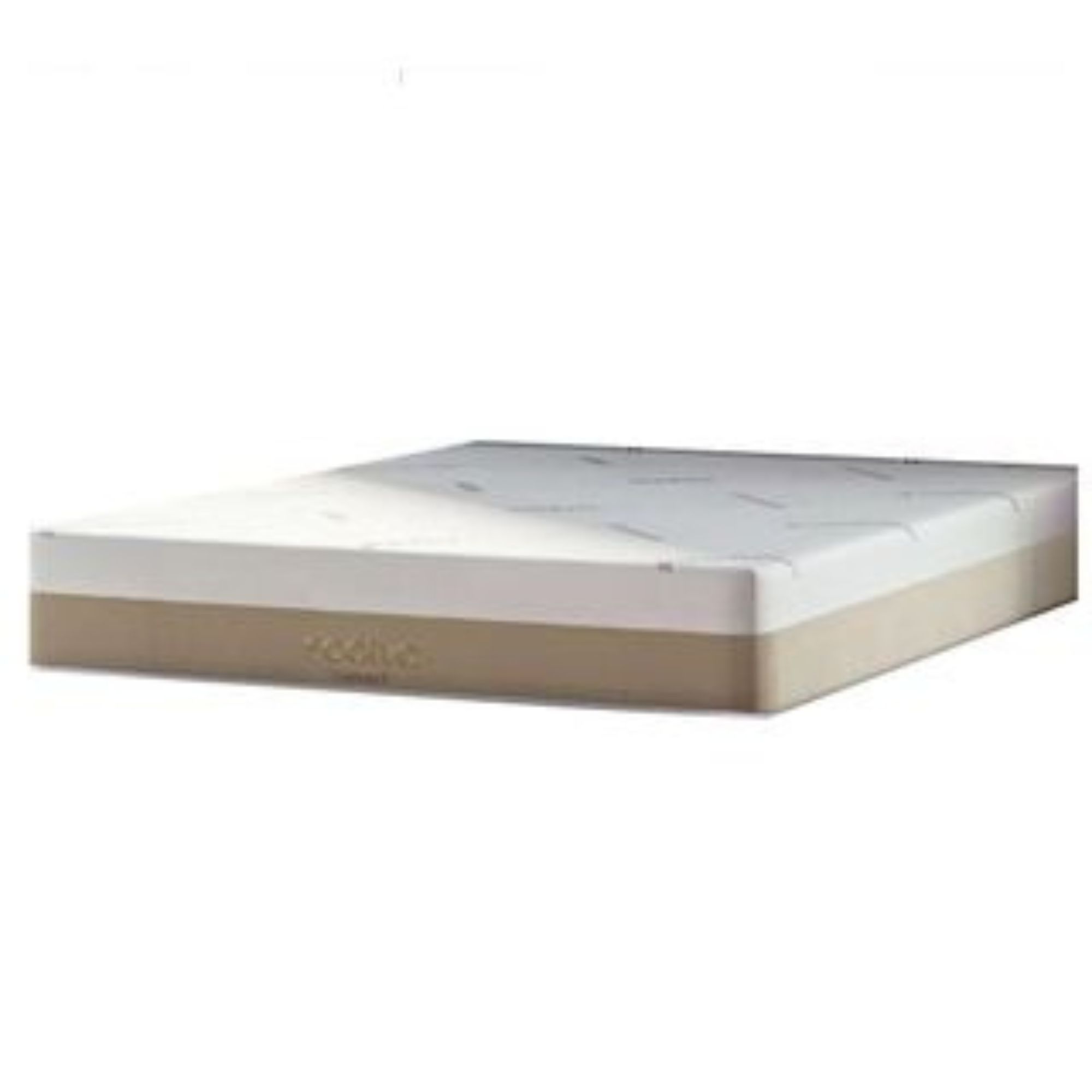
The best memory foam mattress
Memory foam offers outstanding motion isolation and full-body pressure relief. It's a great choice for couples and anyone who suffers from chronic pain or injuries. This option from Saatva ticks all my boxes − but it's seriously expensive.
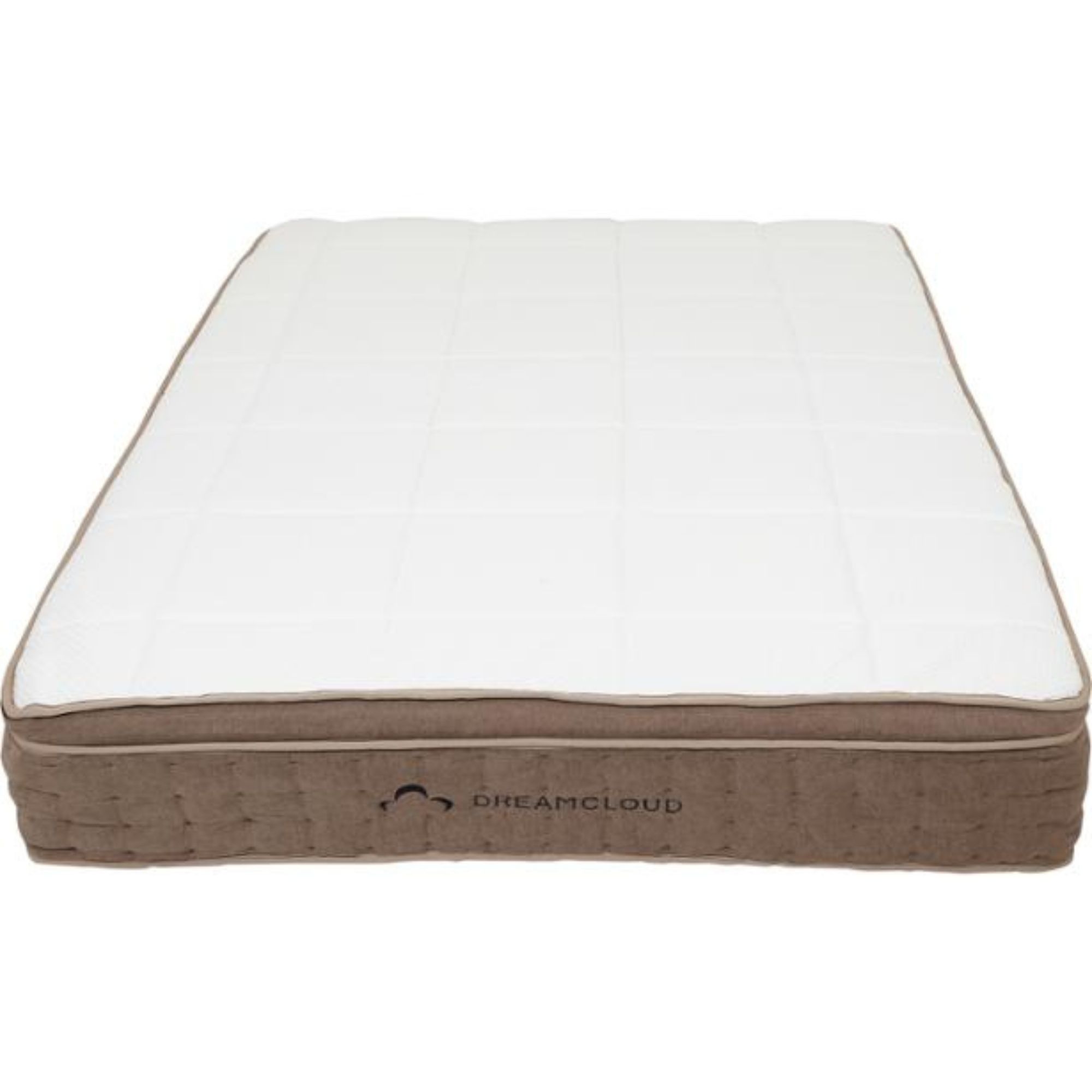
The best box mattress
A good box mattress should deliver comfort and convenience on the cheap. DreamCloud goes the extra mile with their Luxury Hybrid Mattress, which comes with a 365-night sleep trial, a lifetime warranty, and free shipping and returns.
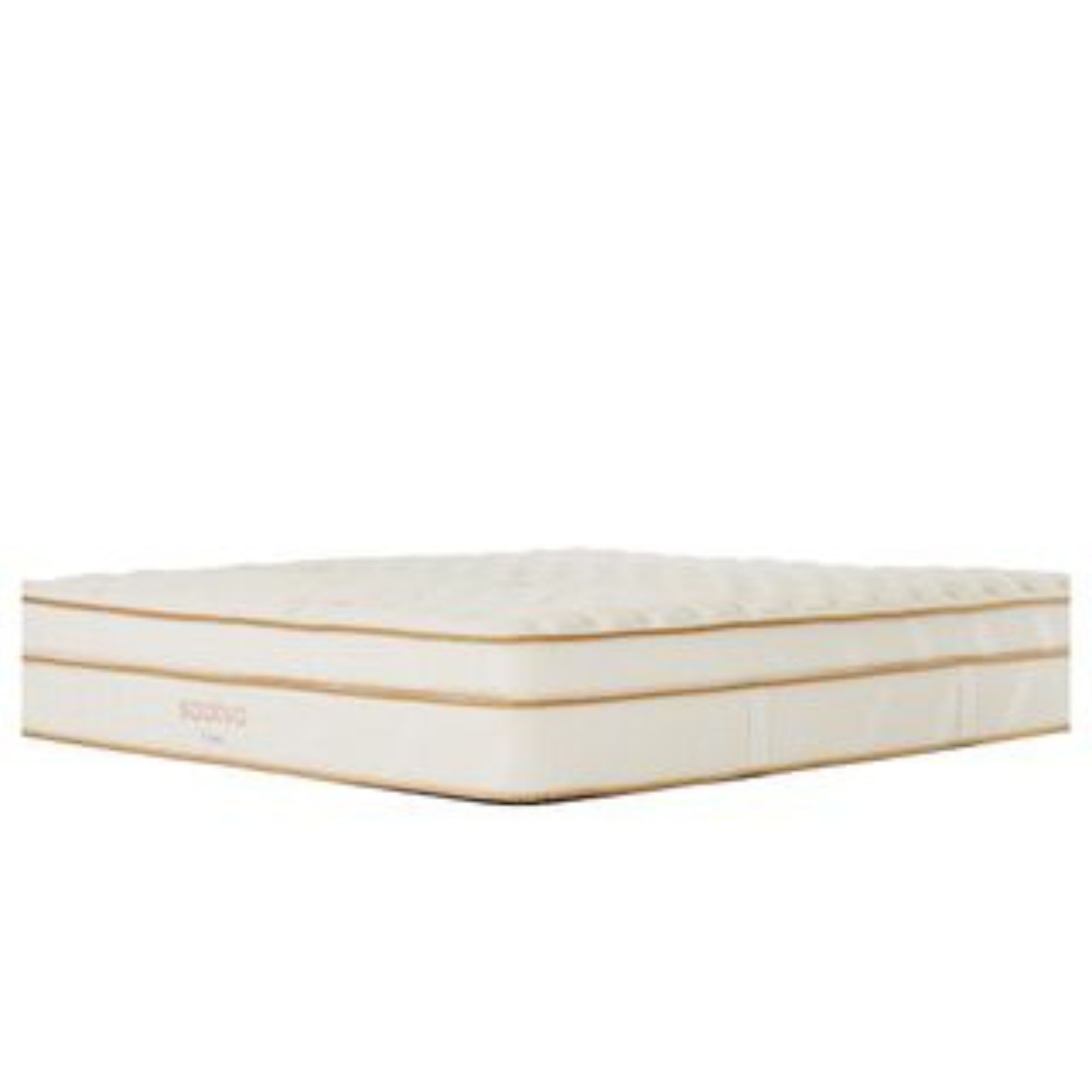
The best cooling mattress
Between the supportive steel springs, which enhance airflow as they compress and decompress, and the open-cell structure of the latex layer, there's a lot of air inside this mattress. It's ideal for hot sleepers and warmer climates.
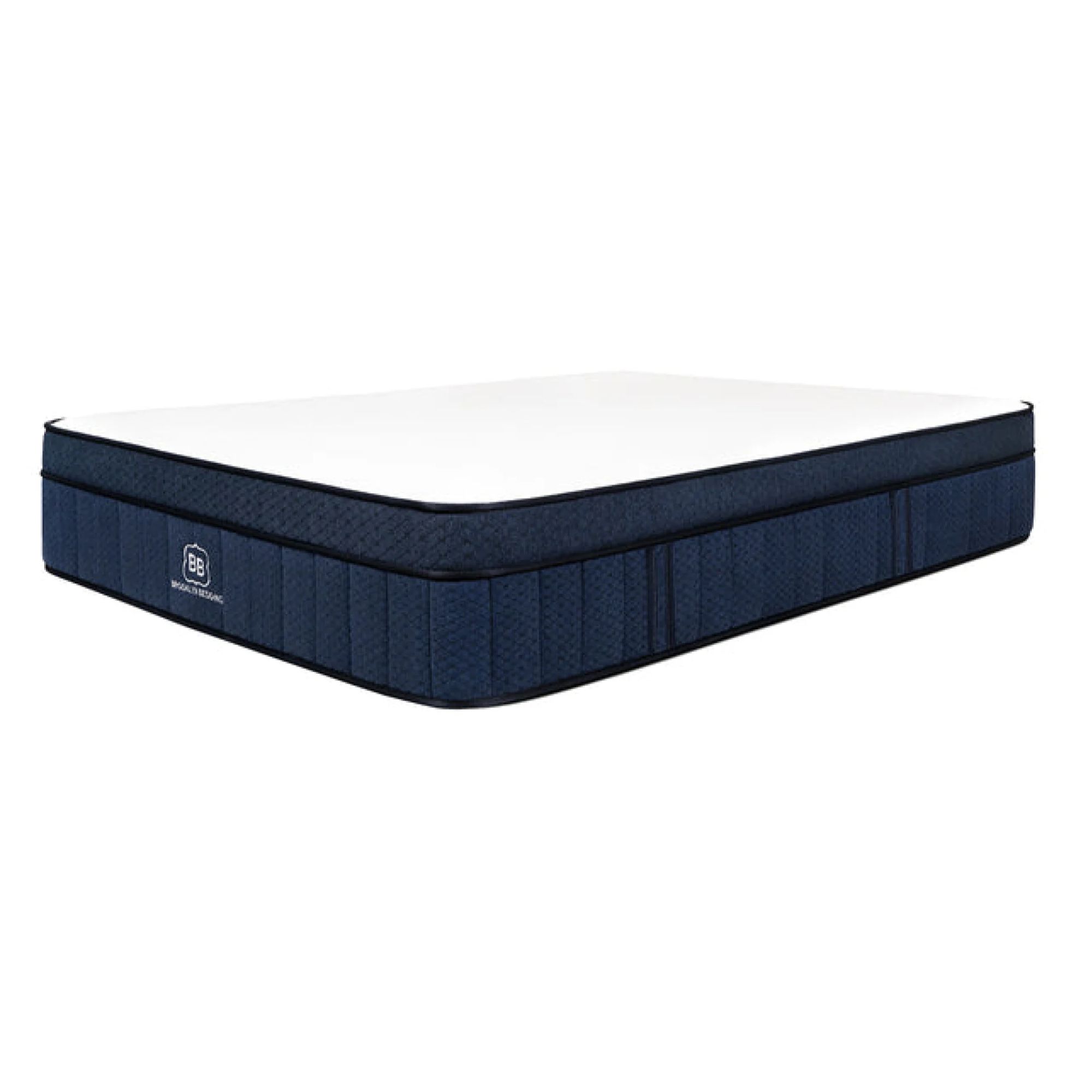
The best hybrid mattress
This high-quality hybrid combines the airflow and support of an innerspring with the plush feel of memory foam. Filled with gel-infused memory foam to dissipate heat and wrapped in a cooling cover, the Aurora Luxe is also suitable for hot sleepers.
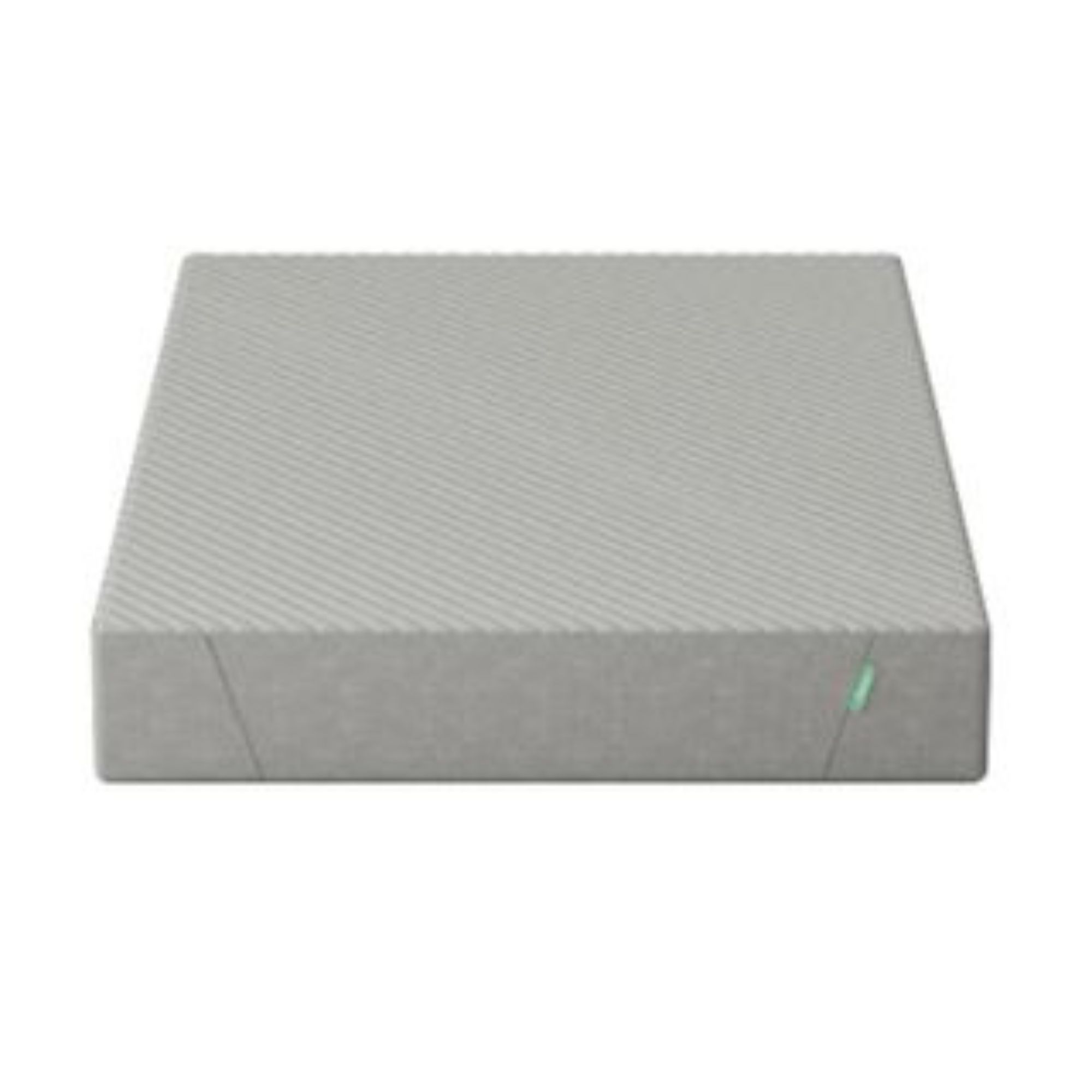
The best affordable mattress
For a little less than $400, the Siena Memory Foam Mattress offers solid support and minimal motion transfer. I'd recommend this mattress for buyers on a budget and anyone who appreciates a firmer surface.
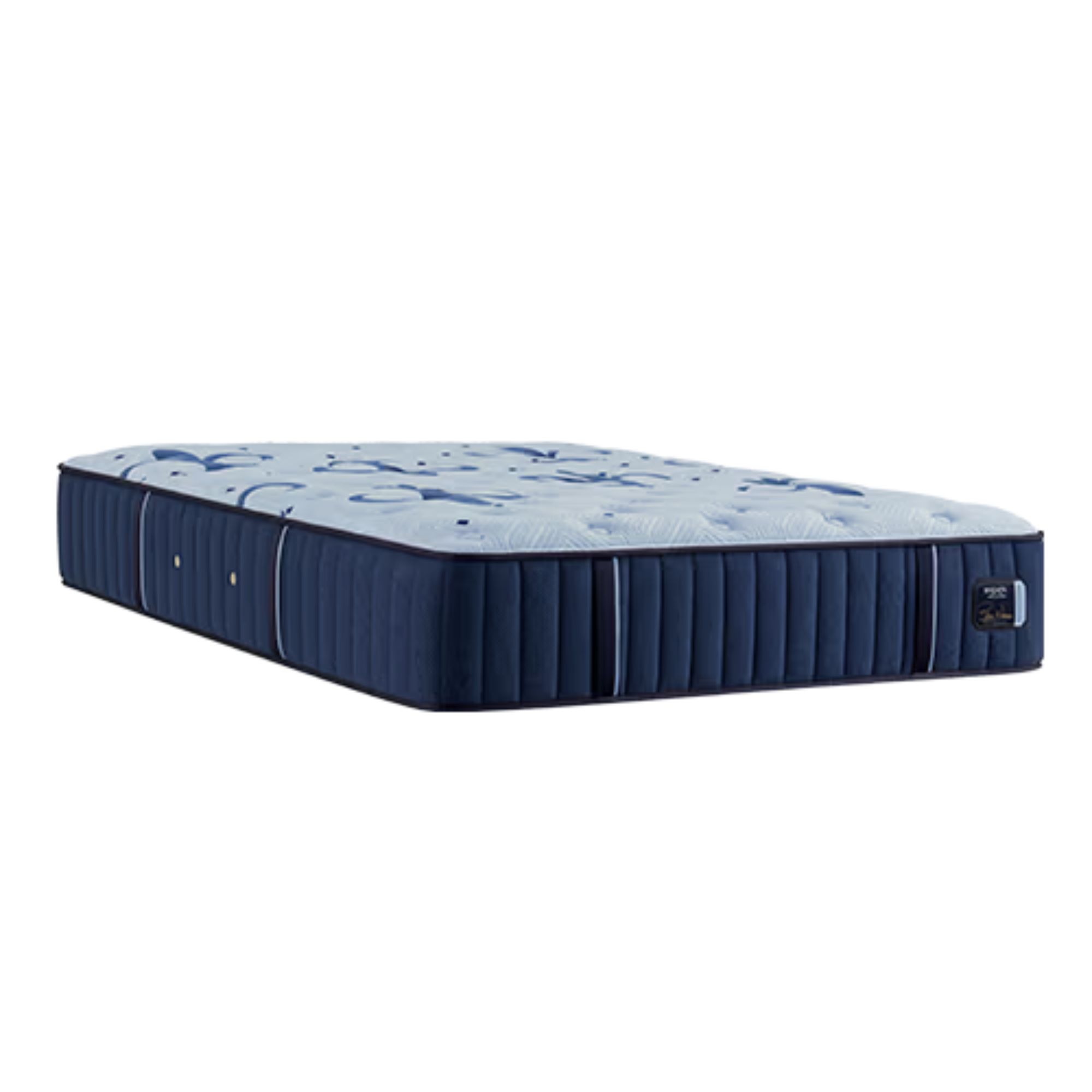
The best firm mattress for stomach sleepers
If you sleep on your stomach, you need a firm, flat surface to stop your pelvis from sinking too far into the mattress. The Stearns & Foster Estate Mattress should keep your spine straight without crushing your chest.
The Best Mattress Overall
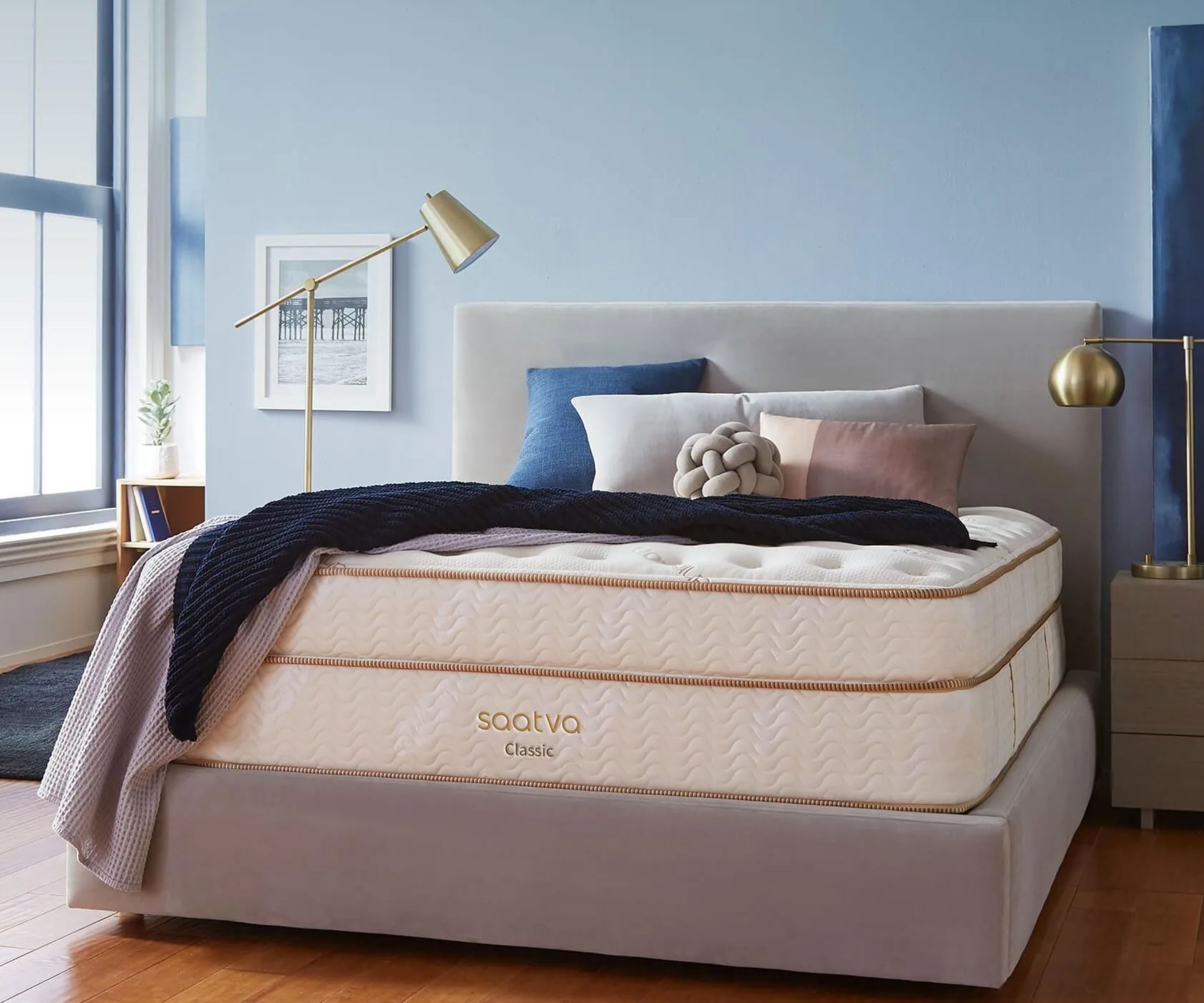
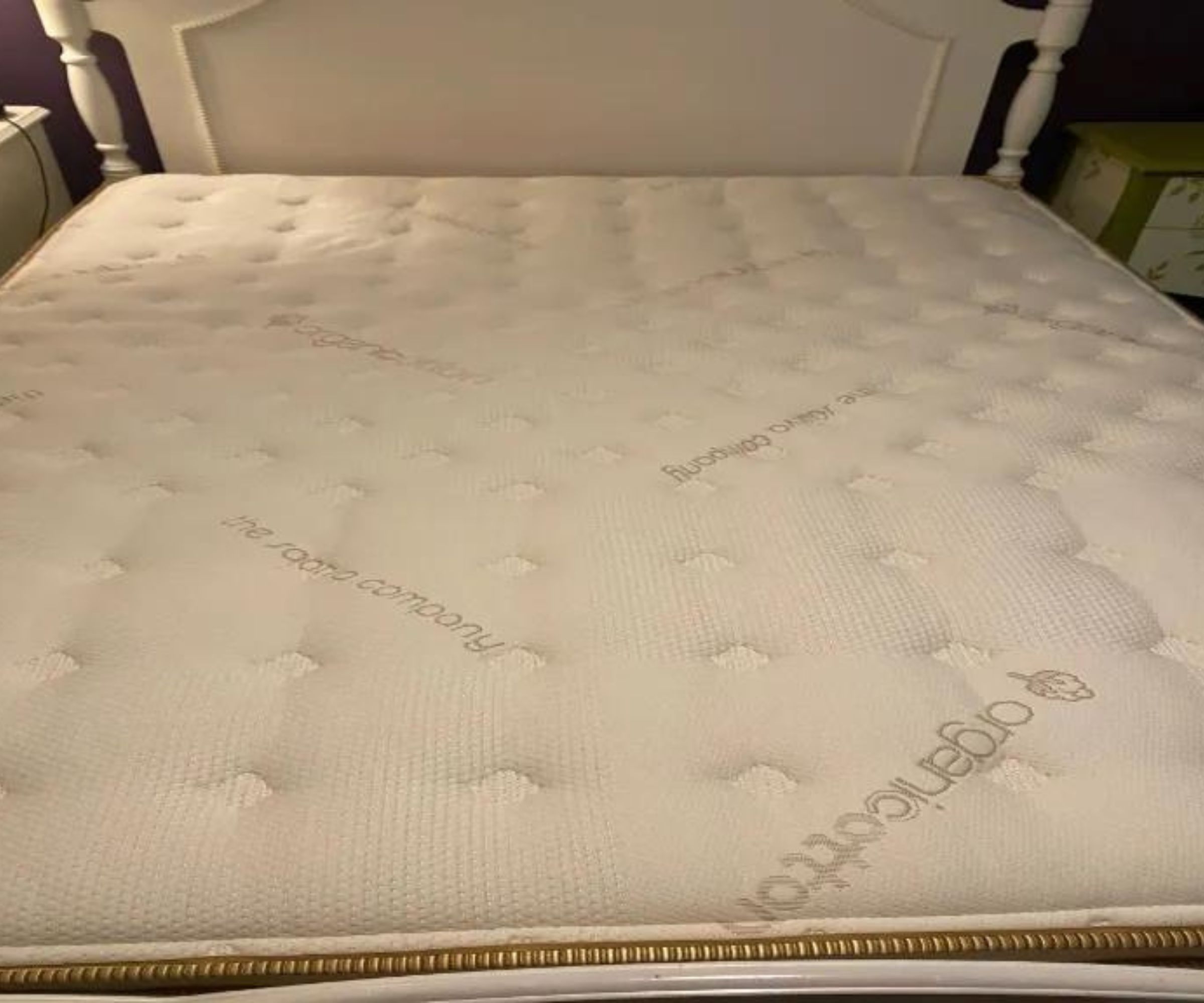
1. Saatva Classic Mattress
A luxury innerspring to elevate the everyday
Price: $1,195 - $2,990 | Firmness: Plush Soft, Luxury Firm, Firm | Type: Innerspring | Sizes: Twin, Twin XL, Full, Queen, King, Split King, California King, Split California King | Sleep trial: 365 nights | Warranty: Lifetime | Delivery: Free white-glove delivery
The Saatva Classic Mattress is our reigning champion for the title of 'best mattress', four years running. This luxury innerspring mattress combines the airflow and support of a coil core with the pressure-relieving properties of a plush pillow-top. I'd recommend the Saatva Classic for front, back, and side sleepers alike, as well as anyone who runs hot or lives in a warm climate.
'I've spent more than four years sleeping with my Saatva Classic in Luxury Firm,' says expert tester Jaclyn Turner. 'It's a true medium that gives you a touch of softness without that sinking feeling. It's like bringing a luxury hotel bed back home with you.'
The Saatva Classic Mattress strikes a careful balance between comfort and support: subtle crests and troughs on the pillow top create ergonomic zones to give each area of your body the specific support it needs. Full disclosure: it took Jaclyn a few sleeps to get used to the feeling of the foam, but 'now, [she] wouldn't want to sleep on anything other than the Saatva Classic.'
Just a few things to note about the Saatva Classic Mattress before you buy it: first, there's a 600lb maximum weight capacity. If you share a bed, and you're both on the heavier side, then you should consider the WinkBeds Luxury Hybrid Mattress, instead, which comes in 'Plus' for plus-sized sleepers. You'll find it more supportive than the Saatva Classic, albeit not quite as luxurious. Also, if you change your mind about the Saatva Classic Mattress within the first year of purchase and you decide to refund or exchange it, you'll need to pay a $99 return fee.
Read the full review: Saatva Classic Mattress
Attribute | Notes | Score (out of 5) |
|---|---|---|
Pressure relief | Three firmness levels to suit everyone | 5 |
Thermo-regulation | Highly breathable through heat waves | 5 |
Motion isolation | Some motion transfer | 3 |
Edge support | Reinforced with high-density foam rails | 5 |

Jaclyn is our former sleep expert. Now, she's the Senior Home Editor at Business Insider, overseeing tests for mattresses and bedding. Jaclyn is a combination sleeper, who switches between her back and her side, so she needs a mattress that strikes just the right balance between comfort and support. She can't recommend the Saatva Classic highly enough.
Best Mattress for Back Pain

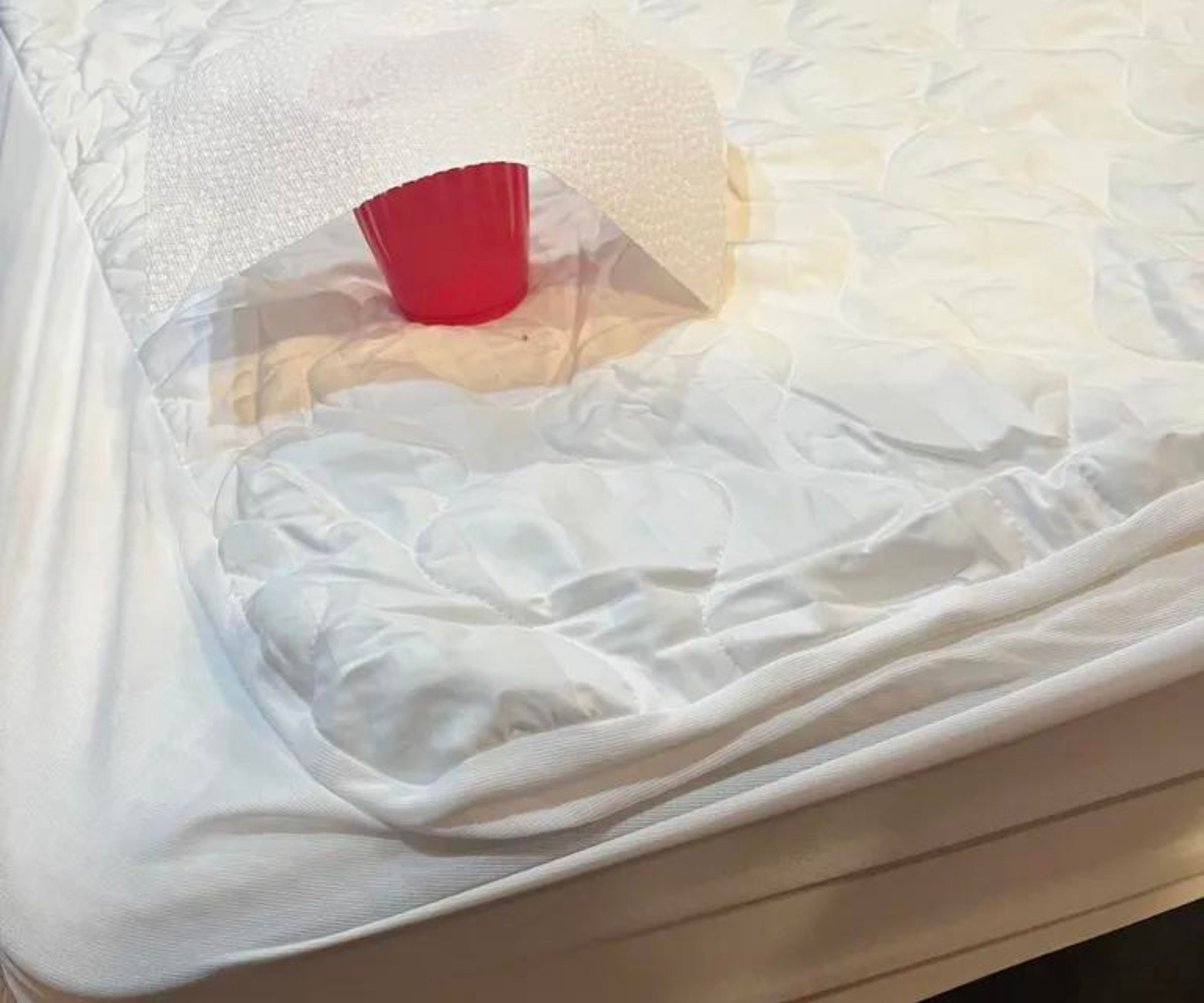
2. Nectar Memory Foam Mattress
Pressure relief and deep support for your spine
Price: $349 - $1,098 | Firmness: Medium-firm | Type: Memory foam | Sizes: Twin, Twin XL, Full, Queen, King, Split King, California King | Sleep trial: 365 nights | Warranty: Lifetime | Delivery: Free shipping and returns
According to chiropractor Dr. Kevin Lees, 'the best mattress for back pain must be supportive, which doesn't necessarily mean firm or soft. It needs to hold the spine and pelvis in a neutral position without creating pressure points or allowing any one part of the body to sink too far into the mattress.' Out of all the mattresses we've tried, the Nectar Memory Foam Mattress offers the best balance of sinkage versus support to keep your spine straight.
I assigned mattress tester Casey Clark to sleep on the Nectar Memory Foam Mattress. 'Between my chronic pain and my insomnia, I often struggle to sleep,' explains Casey. 'I think the Nectar Memory Foam Mattress hits the sweet spot. When I lay on my back, I feel like my body is in perfect alignment. Due to my fibromyalgia, I do wake up with sore bones every once in a while, but for the most part, there's no pain I can directly relate to the mattress.' Your back pain might not feel exactly like Casey's, but it's a ringing endorsement for the pressure-relieving properties of the Nectar Memory Foam Mattress.
All that dense foam makes for solid support, but it doesn't leave much room for air to flow through the mattress. Casey is a hot sleeper and she sometimes woke up in a sweat on the Nectar Memory Foam Mattress. Although the mattress is super-supportive in the center, it's a little soft around the edges. You'd struggle to sit on the side of the bed to nurse a baby or get dressed in the morning. The SweetNight Prime Memory Foam Mattress has much better edge support, although it's not quite as comfortable.
We've just finished testing the Saatva Contour5 Mattress, which also scored highly for pressure relief and spinal support. Still, the Saatva Contour5 costs more than four times as much as the Nectar Memory Foam Mattress, and it doesn't perform four times as well.
Read the full review: Nectar Memory Foam Mattress
Attribute | Notes | Score (out of 5) |
|---|---|---|
Pressure relief | Eased the aches and pains of fibromyalgia | 5 |
Thermo-regulation | Less suitable for hot sleepers | 3 |
Motion isolation | Minimal motion transfer | 5 |
Edge support | Soft and squishy around the edges | 2 |

Casey is a freelance journalist whose reviews feature in Forbes, TODAY, HuffPost, and more. Casey suffers from chronic pain and a heat intolerance, so she needs a mattress with plentiful pressure relief and cooling properties. This Nectar mattress ticks (almost) all her boxes.
Best Mattress for Side Sleepers
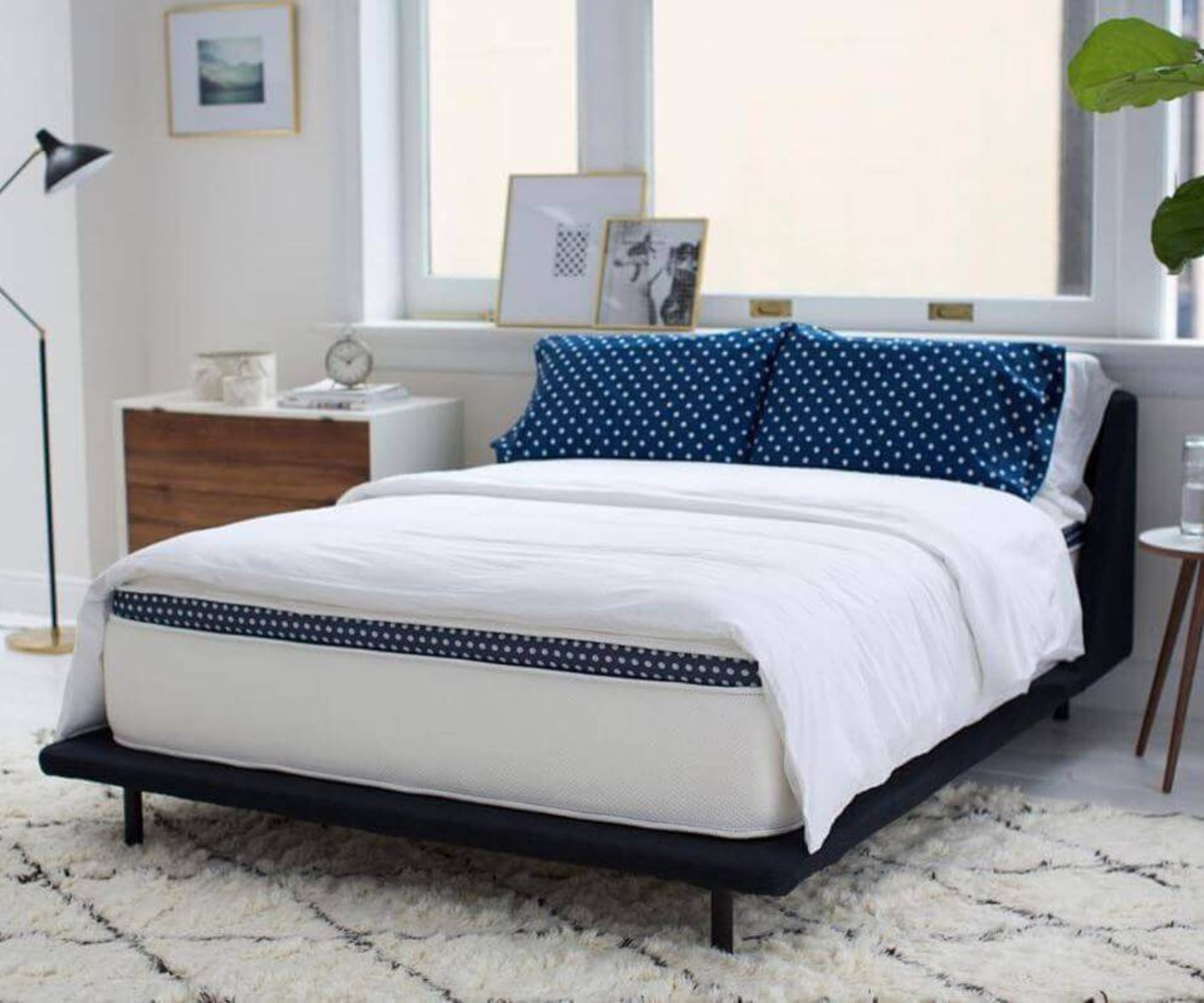
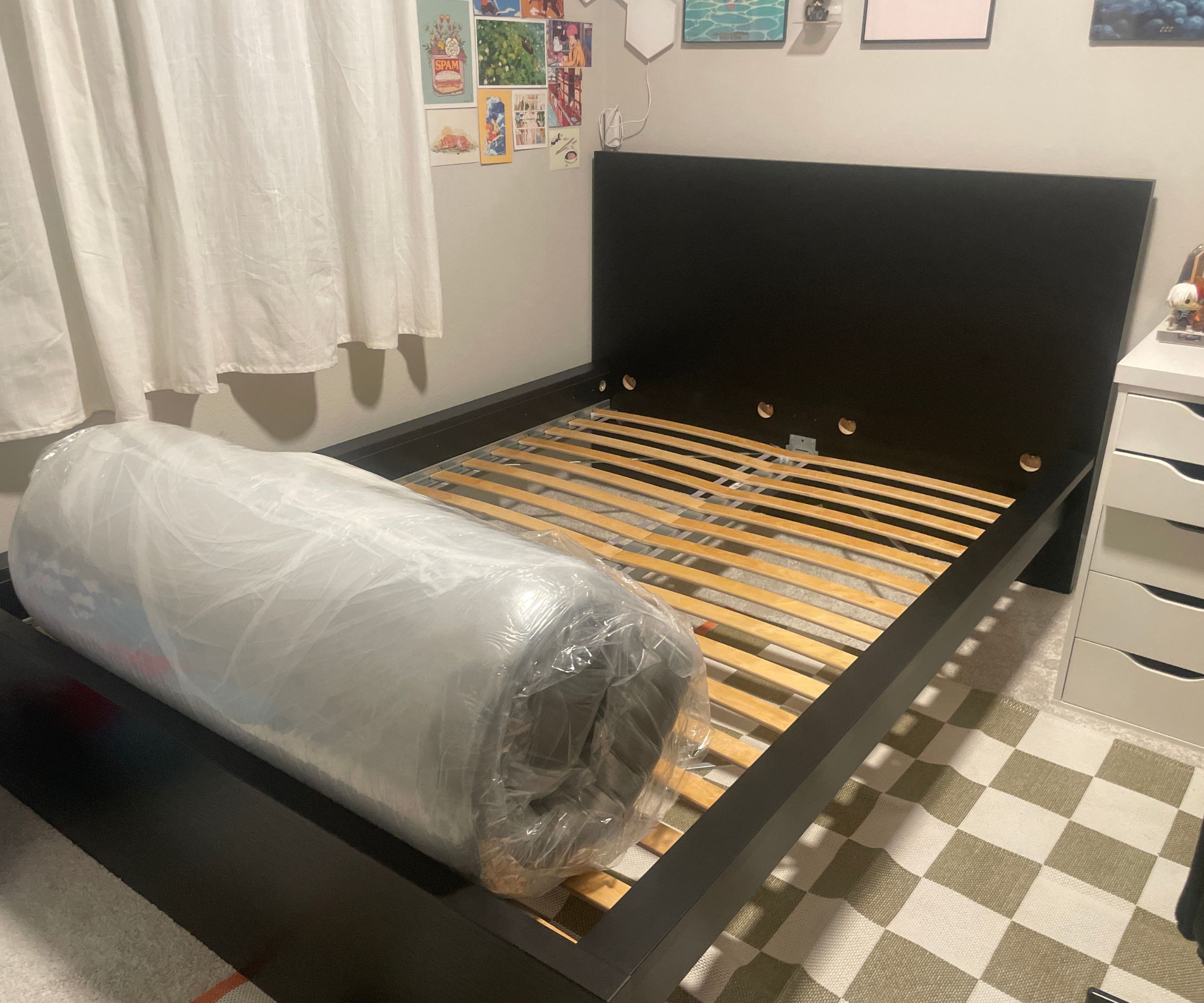
3. WinkBeds Luxury Hybrid Mattress
Soft yet supportive to keep your spine in line
Price: $1,149 - $2,049 | Firmness: Softer, Luxury Firm, Firmer, Plus | Type: Hybrid | Sizes: Twin, Twin XL, Full, Queen, King, California King | Sleep trial: 120 nights | Warranty: Lifetime | Delivery: Free delivery
If you sleep on your side, you should look for a mattress that's soft enough to cushion your joints yet sufficiently supportive to lift and lengthen your spine. The WinkBeds Luxury Hybrid Mattress fits the bill. 'Between the zoned support of innersprings and the pressure relief of the memory foam, the WinkBed Luxury Hybrid Mattress is designed to bear your weight and promote proper spinal alignment,' says expert tester Aleenah Ansari.
Out of all the mattresses on this list, the WinkBed Luxury Hybrid Mattress performed best in our motion isolation test. Aleenah filled a glass with water, set it in the center of the mattress, then jumped around beside it, just like they used to do in those Tempur-Pedic TV ads of old. The glass barely moved, and not a drop of water spilled, indicating excellent motion isolation. In practice, Aleenah could get into and out of bed in the middle of the night without disturbing her partner. She'd happily recommend the WinkBeds Luxury Hybrid Mattress for couples and light sleepers.
'A mattress with outstanding motion isolation and excellent edge support is the holy grail,' enthuses Aleenah. 'I feel like I've finally found it in the WinkBed Luxury Hybrid Mattress. Even when sitting on the edge, I didn't feel like I was going to fall off, which is likely a product of this being a firmer mattress. In addition to side sleepers, I would also recommend this bed for stomach sleepers and anyone who tends to lie on the side of the bed.'
'I think WinkBeds is one of the best places to buy a mattress for plus-sized sleepers,' says Aleenah. 'You can shop the Luxury Hybrid Mattress in Plush, which feels extra-firm to stop you from sinking too far into the mattress.'
Read the full review: WinkBeds Luxury Hybrid Mattress
Attribute | Notes | Score (out of 5) |
|---|---|---|
Pressure relief | Four firmness levels to suit different sleep styles | 4 |
Thermo-regulation | Infused with cooling gel | 4 |
Motion isolation | Minimal motion transfer | 5 |
Edge support | Solid support to sit or sleep on the side of the bed | 5 |

Aleenah is a freelance writer and reviewer for travel, wellness, and tech products, with two mattress reviews under her belt. Aleenah appreciates the zoned support of the springs and foam to keep her spine in line.
Best Memory Foam Mattress
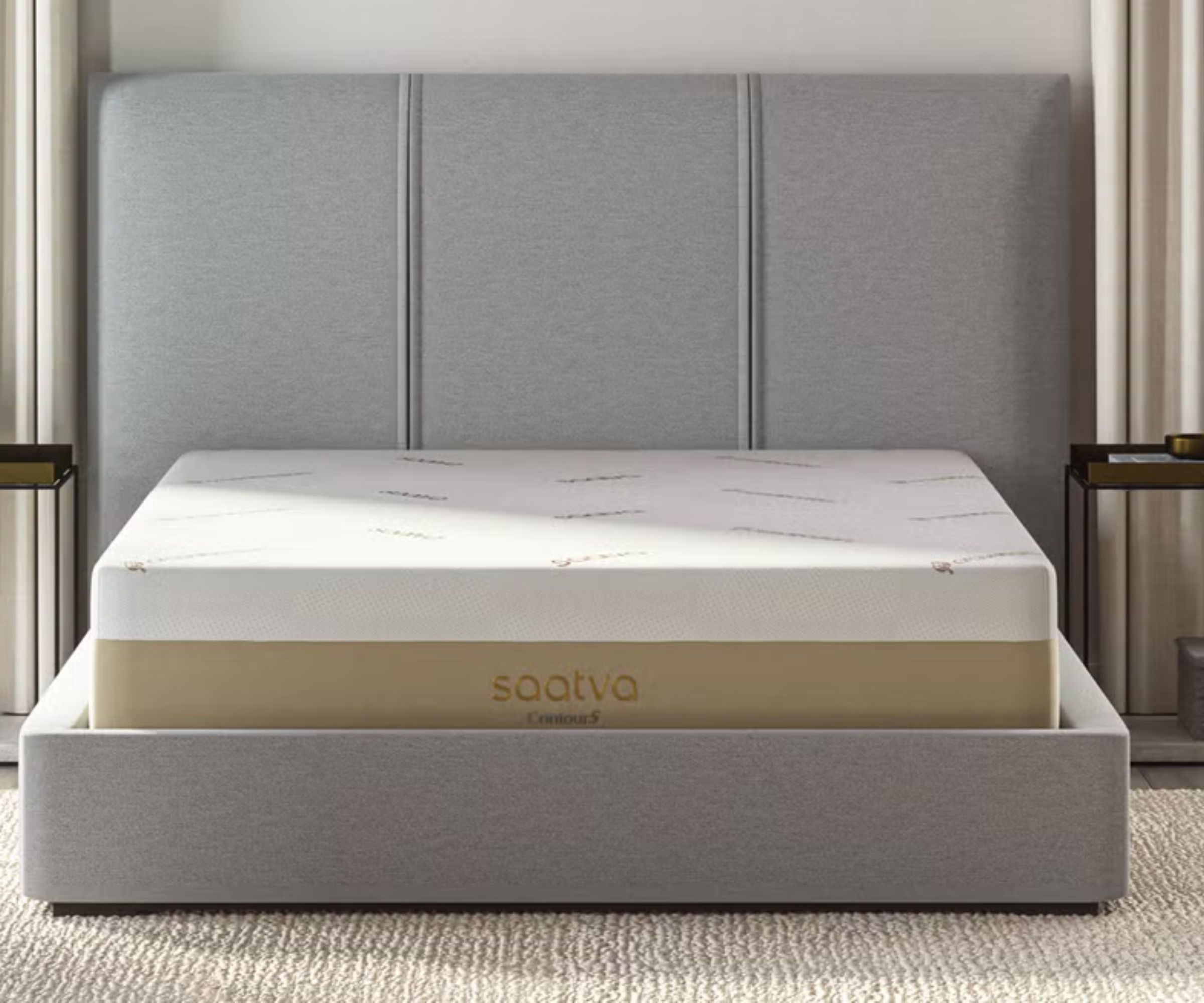
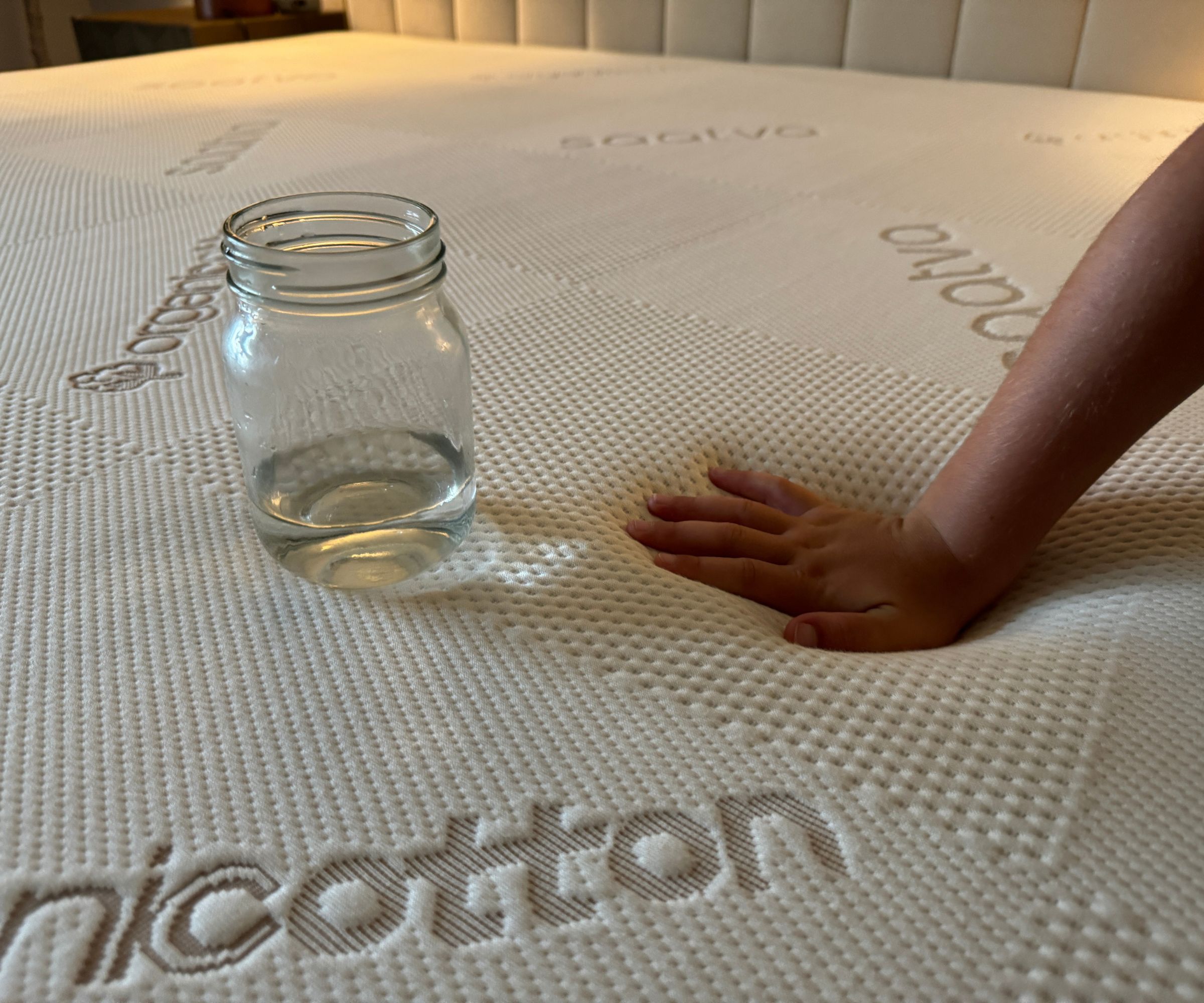
4. Saatva Contour5 Mattress
Enhanced cooling and superior edge support
Price: $1,895 - $3,990 | Firmness: Medium or Firm | Type: Memory foam | Sizes: Twin, Twin XL, Full, Queen, King, California King, Split King | Sleep trial: 365 nights | Warranty: Lifetime | Delivery: Free white glove delivery
Out of all the memory foam mattresses we've tested, the Saatva Contour5 Mattress sits head and shoulders above the rest. Expert tester Alex Frost claims that 'this is the only memory foam mattress I've ever tested that delivers on comfort, cooling, and edge support'. Admittedly, the Saatva Contour5 is far more expensive than the Nectar Memory Foam Mattress, but I like to think of it as an investment.
'When I woke up after my first night of sleeping on the Saatva Contour5 Mattress, I was pleasantly surprised to discover that my typically achy back and joints were a little less agitated,' says Alex. 'I put that down to the firm support of the mattress − there's just enough give to cushion your joints without throwing your spine out of alignment.' Alex sampled the Saatva Contour5 in Firm, but you could also opt for the slightly squishier support of Medium.
Your average memory foam mattress tends to trap heat. 'I'd read about the airflow channels through the middle of the mattress, which work to carry heat away from your body and out of the bed, but I wanted to be convinced that it was more than marketing jargon,' says Alex. 'After a whole summer testing, I'd put the Saatva Contour5 up there with the best cooling mattresses, which is quite the feat for a memory foam model.'
'Memory foam mattresses are infamous for their lack of edge support,' Alex complains. 'All too often, the soft squishiness of the center extends to the sides of the mattress. Some nights, one or two of my kids end up in my bed with a bad dream, and I have to make the most of every inch, so I appreciate edge support more than most. Luckily, I found that the Saatva Contour5 Mattress has exceptional edge support, so I could sit and sleep comfortably on the side.'
Read the full review: Saatva Contour5 Mattress
Attribute | Notes | Score (out of 5) |
|---|---|---|
Pressure relief | Two firmness levels to suit different sleep styles | 4 |
Thermo-regulation | Perforated with airflow channels | 4 |
Motion isolation | Minimal motion transfer | 5 |
Edge support | Comfortable to sit and sleep on the side of the bed | 5 |

Alex is our most prolific mattress tester, with eight reviews under her belt. As someone who suffers from recurring lower back pain, Alex needs a supportive mattress with plenty of squish to cushion her joints.
Best Box Mattress
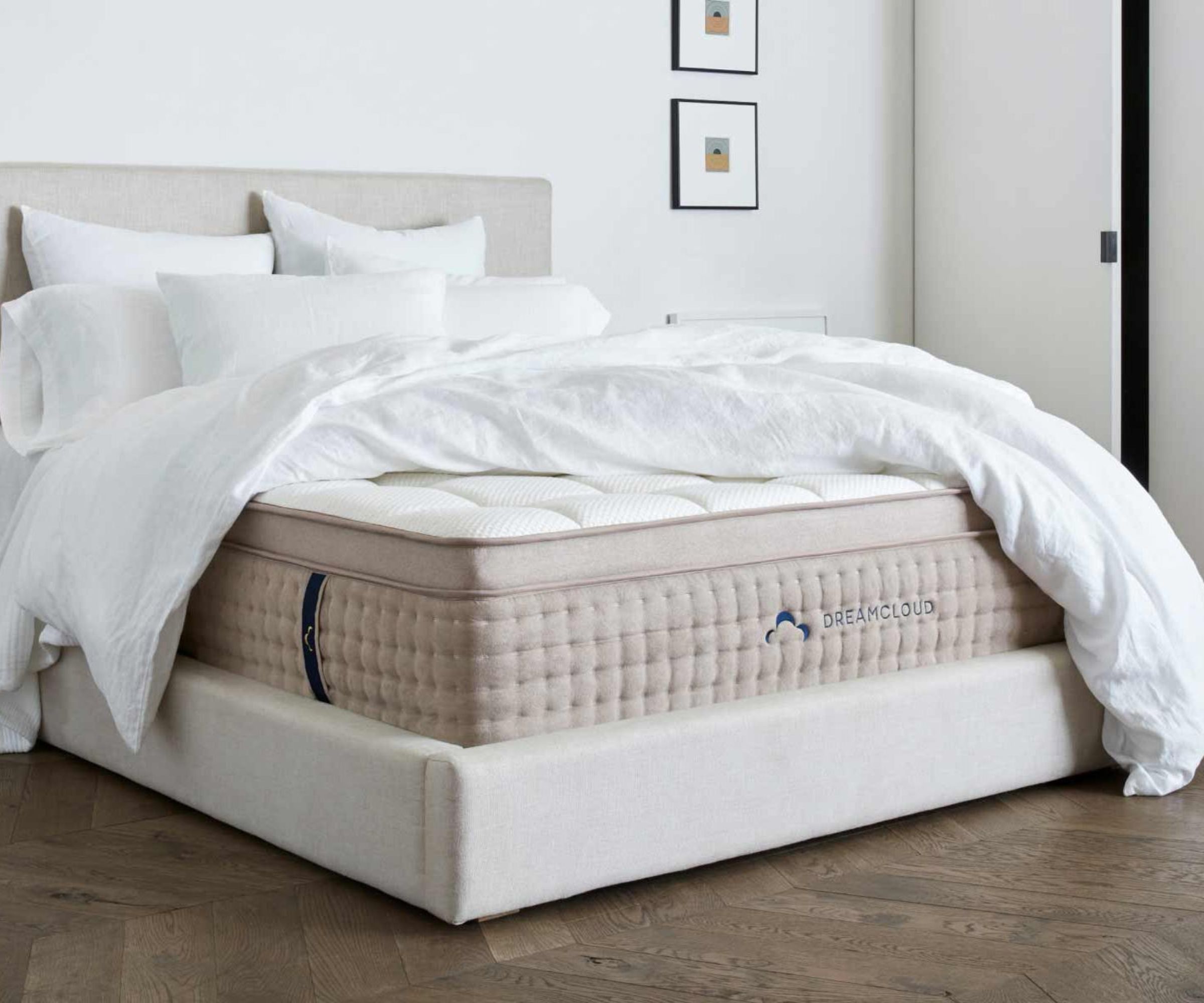
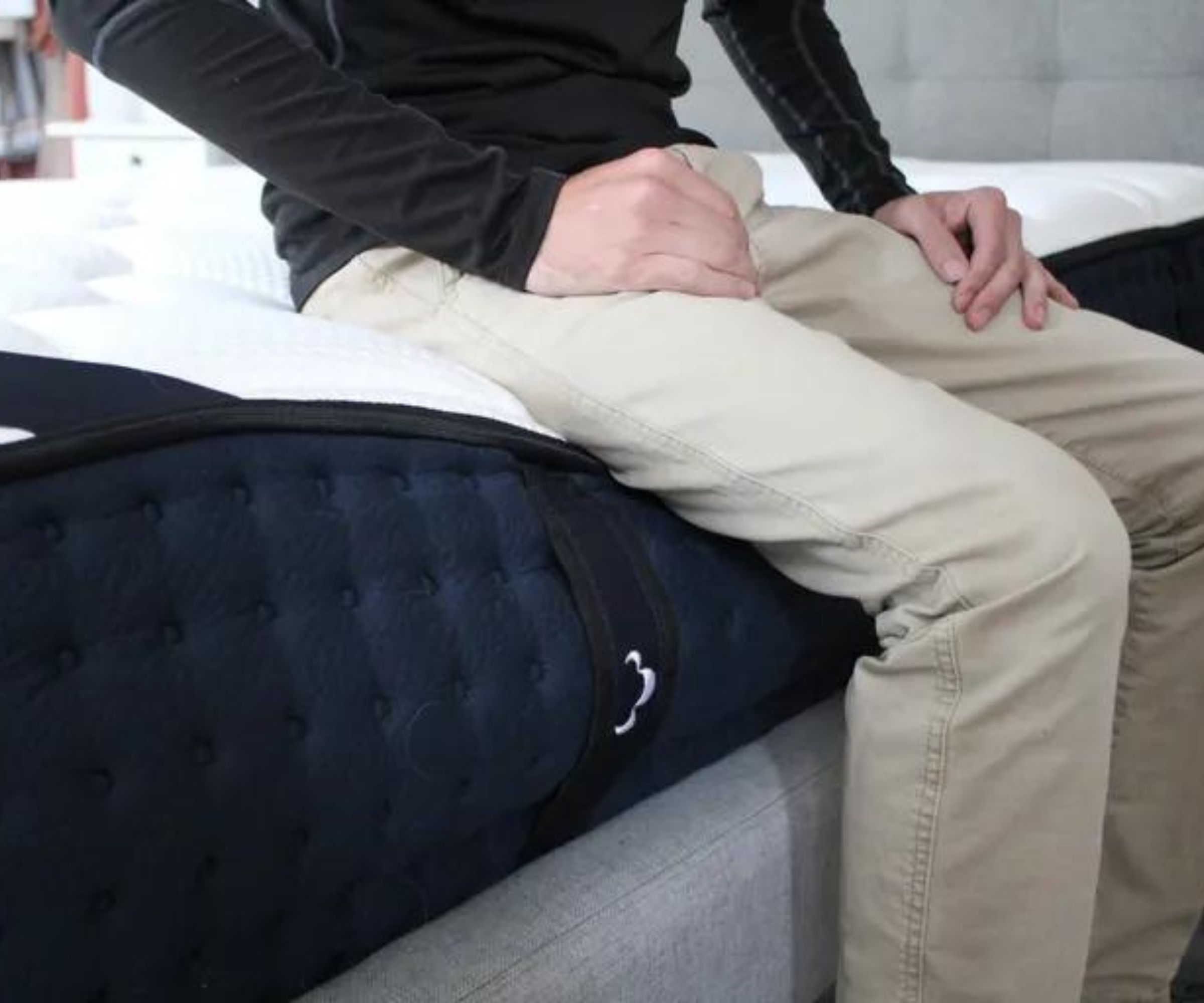
5. DreamCloud Luxury Hybrid Mattress
Comfort and convenience in one neat package
Price: $419 - $1,090 | Firmness: Medium-firm | Type: Hybrid | Sizes: Twin, Twin XL, Full, Queen, King, California King | Sleep trial: 365 nights | Warranty: Lifetime | Delivery: Free shipping and returns
When I assigned prolific product tester Camryn Rabideau to test yet another box mattress, she was skeptical. Your average box mattress is a thick slab of foam, compressed into a cardboard package and dumped outside your door. She was pleasantly surprised to find that 'this is a premium bed, lined with supportive springs to withstand the wear and tear of nightly use.' There was no unpleasant smell from mattress off-gassing, nor were there any idents or impressions in the foam – that's why the DreamCloud Luxury Hybrid Mattress is the best box mattress around.
Where your average box mattress is made from cheap foam that goes soft around the sides, the DreamCloud Luxury Hybrid Mattress features a row of reinforced steel coils around the edges. Camryn could comfortably sleep at the edge of the bed or sit on the side of the mattress. Plus, for a self-appointed 'luxury' mattress, it's seriously affordable. The DreamCloud Luxury Hybrid Mattress is almost always discounted in the mattress sales, so you can bag a Queen-sized bed for just $665.
Any hybrid mattress is liable to have a bit of bounce. A coil core makes it much easier to get into and out of bed, especially if you struggle with mobility, but it does make for a bit of motion transfer. When her partner tossed and turned on his side of the bed, Camryn could feel the vibrations over on hers. Although Camryn loved the medium-firm feel of the DreamCloud Luxury Hybrid Mattress, her partner wasn't so keen: he might have preferred something softer, like the Layla Hybrid Mattress.
Read the full review: DreamCloud Luxury Hybrid Mattress
Attribute | Notes | Score (out of 5) |
|---|---|---|
Pressure relief | Firm support | 4 |
Thermo-regulation | Infused with cooling gel | 4 |
Motion isolation | Moderate motion transfer | 2 |
Edge support | Heavy-duty gauge edge shield | 5 |

Camryn is a freelance writer and product reviewer. Since she shares a bed with her partner and their dog, and often gets shunted to the side, she needs a mattress with excellent edge support. As a side sleeper, she needs a bit of give to cushion her hips and shoulders.
Best Cooling Mattress

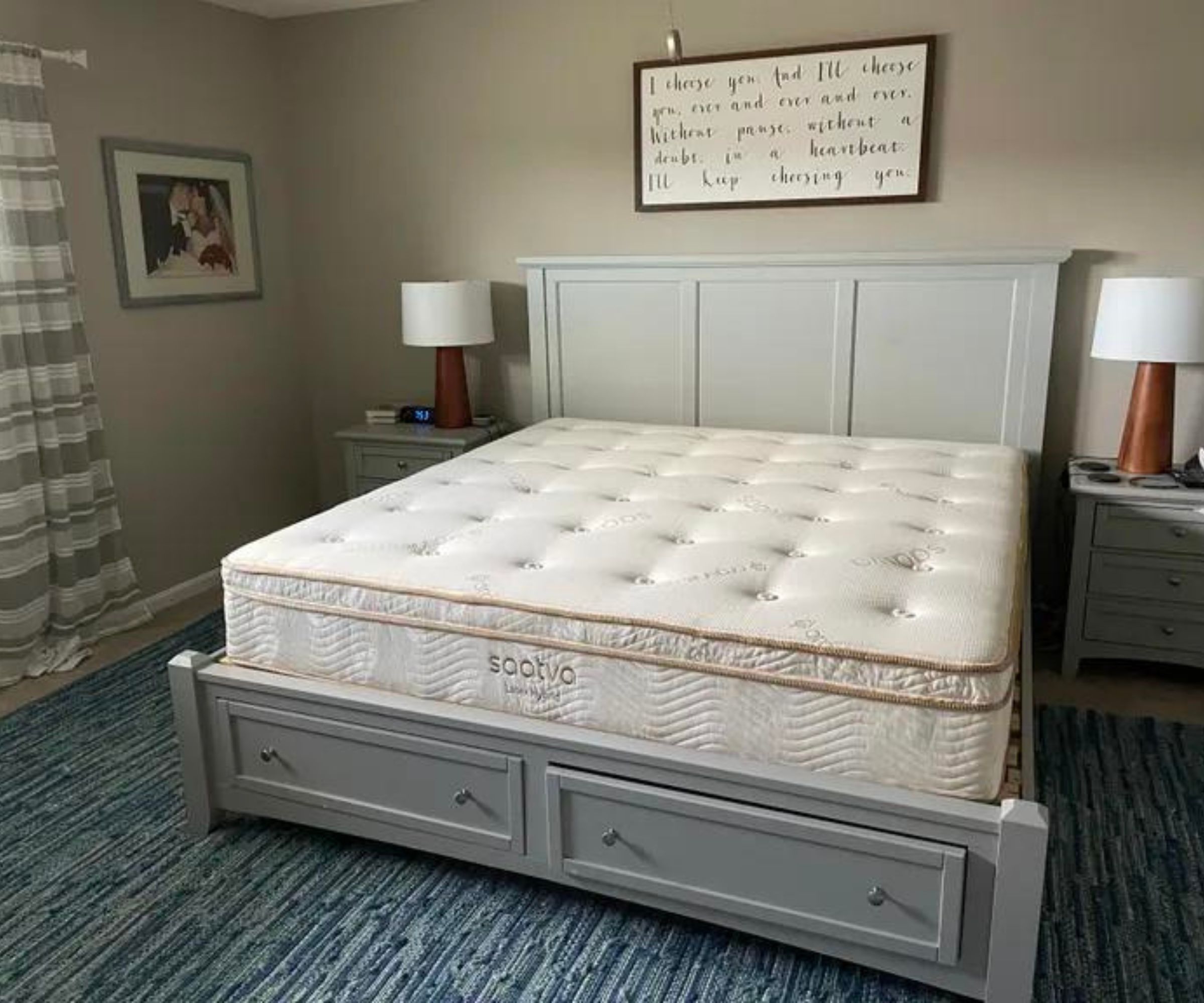
6. Saatva Latex Hybrid Mattress
Cooling comfort for hot sleepers and warm climates
Price: $1,395 - $3,040 | Firmness: Medium | Type: Latex hybrid | Sizes: Twin, Twin XL, Full, Queen, King, Split King, California King | Sleep trial: 365 nights | Warranty: Lifetime | Delivery: Free white glove delivery
If you suffer from night sweats or hot flashes, or you simply tend to run a little warm, you're what's known as a hot sleeper. You need one of the best cooling mattresses to dissipate heat, wick moisture, and block odors so that you can sleep cool and feel fresh. This hybrid mattress combines the natural breathability of latex with the enhanced airflow of a coil core to create a thermoregulating mattress for hot sleepers and warm climates.
Over the years, we've tested a healthy handful of specialist cooling mattress. The Saatva Latex Hybrid Mattress delivers the best performance at the fairest price. In place of memory foam, which tends to trap heat, you'll find a comfort layer of Talalay latex, arranged in an open-cell structure to promote airflow. Underneath, the coils push air through the bed as they compress and decompress beneath your body weight.
'As someone who sleeps almost face-down right on top of the bed, I can testify to the cooling properties of the Saatva Latex Hybrid Mattress,' says Alex Frost, a life-long hot sleeper. She tested the Saatva Latex Hybrid Mattress in her heat bubble of a bedroom during a humid Ohio summer and she couldn't believe how cool it kept her.
It's the lack of edge support that keeps the Saatva Latex Hybrid Mattress from occupying a higher position in our buying guide. 'Although it felt comfortable to lie on the side of the bed, the mattress edge couldn't hold my weight when I sat on it,' says Alex: 'I couldn't even sit on the side of the bed to tie my sneakers.' The DreamCloud Luxury Hybrid Mattress is a breathable bed with better edge support and a much lower price tag, though it isn't quite as cooling as the Latex Hybrid.
Read the full review: Saatva Latex Hybrid Mattress
Attribute | Notes | Score (out of 5) |
|---|---|---|
Pressure relief | Soft yet supportive for all sleep positions | 5 |
Thermo-regulation | Suitable for hot sleepers | 4 |
Motion isolation | Minimal motion transfer | 4 |
Edge support | Soft and squishy around the sides | 2 |
Best Hybrid Mattress


7. Brooklyn Bedding Aurora Luxe Cooling Mattress
Soft yet supportive for the best of both worlds
Price: $839.30 - $1,865.50 | Firmness: Soft, Medium, Firm | Type: Hybrid | Sizes: Twin, Twin XL, Full, Queen, King, California King, Split California King, Short Queen, RV King, RV Bunk | Sleep trial: 120 nights | Warranty: 10 years | Delivery: Free shipping
A hybrid mattress marries the airflow and support of an innerspring with the contouring comfort and pressure relief of memory foam. Several of the mattresses in this buying guide are hybrids, including the WinkBeds Luxury Hybrid and the DreamCloud Luxury Hybrid. Out of all the hybrids we've tested, the Brooklyn Bedding Aurora Luxe Cooling Mattress offers the best balance of comfort and support. Certainly, it comes in the widest range of sizes, including Short Queen and RV Bunk.
I first sampled the Aurora Luxe at the Brooklyn Bedding factory in Glendale, Arizona. Impressed by the squishy support, which felt just as comfortable on my stomach as it did on my back and side, I called the mattress home for long-term testing. Given the choice between a Firm, a Medium, and a Soft feel, I opted for Firm: I know that Brooklyn Bedding mattresses err on the softer side, and I need solid support to keep my spine aligned.
Now that I've sampled the Brooklyn Bedding Aurora Luxe Cooling Mattress through all four seasons, I can confirm that the combination of the cooling cover and gel-infused memory foam keeps me cool. If you're a seriously hot sleeper, you might prefer the best cooling mattress.
Like many hybrid mattresses, the Brooklyn Bedding Aurora Luxe Cooling Mattress offers some motion transfer: I attribute that to the bounce in the coils. I could feel it when my partner shifted positions or got into and out of bed in the night. If you're a seriously light sleeper, you should consider the best memory foam mattress for motion isolation.
Read the full review: Brooklyn Bedding Aurora Luxe Cooling Mattress
Attribute | Notes | Score (out of 5) |
|---|---|---|
Pressure relief | Available in three comfort levels to suit all sleep styles | 5 |
Thermo-regulation | Cooling cover and gel-infused memory foam | 5 |
Motion isolation | Some motion transfer when you switch positions | 3 |
Edge support | Solid to sit and sleep on the side of the bed | 4 |

I am the resident Sleep Editor at Homes & Gardens. I shape our testing guidelines and lead our team of expert testers in the search to find the best mattress. As a hot sleeper, I need a breathable mattress to keep me cool.
Best affordable mattress
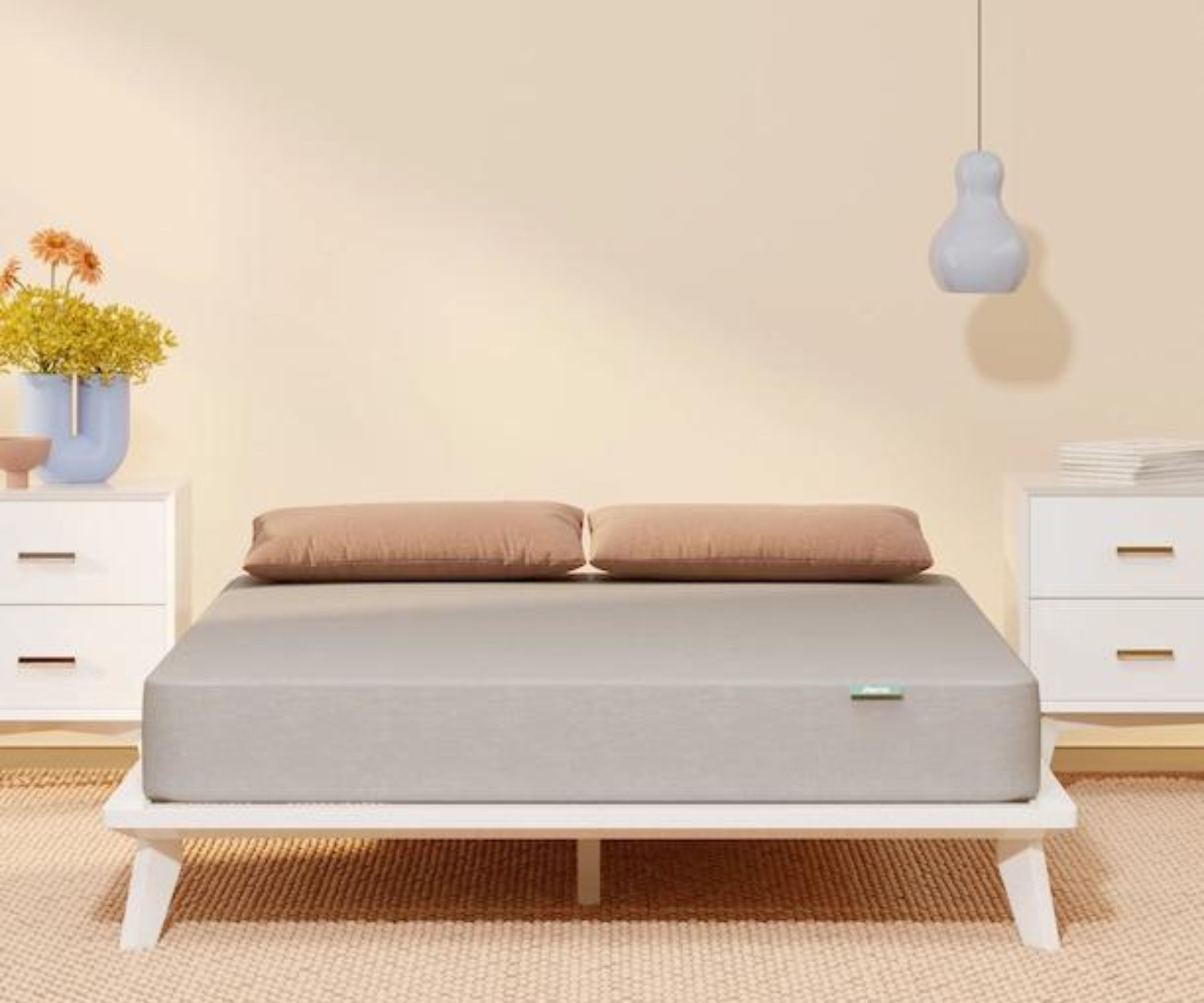

8. Siena Memory Foam Mattress
The best affordable mattress for buyers on a budget
Price: $199 - $976 | Firmness: Medium-firm | Type: Memory foam | Sizes: Twin, Twin XL, Full, Queen, King, California King | Sleep trial: 180 nights | Warranty: 10 years | Delivery: Free shipping and returns
Collating this buying guide got me thinking − a lot of the best mattresses are seriously expensive. Take the Saatva Classic Mattress, our reigning champion for 'best mattress' – a Queen costs around $1,800. That's not as expensive as some of the other mattresses on this list (a Queen-sized Saatva Contour5 costs almost $3,000), but it's hardly affordable for the average American.
I combed through our back catalog of reviews to see which mattress offered the best performance at the lowest price, and the Siena Memory Foam Mattress came out on top. Technically listed at around $800 for a Queen, it's almost always on sale for around $400. The best affordable mattress is a great choice for buyers on a budget or anyone shopping for a spare mattress for the guest room.
For your money, you get eight inches of high-density foam, which forms a solid support core to keep your spine straight. Up top, you'll find two inches of gel memory foam to enhance airflow through the mattress. Mattress tester Tonya Pendleton slept on the Siena Memory Foam Mattress through the spring into the start of summer and she managed to keep cool. She was particularly impressed with the motion isolation of the memory foam. 'My cat jumps on my bed every morning and every evening for feeding reminders and cuddles,' Tonya explains, 'and I don't even feel it when she lands on the mattress.'
Tonya is under no illusion that the Siena Memory Foam Mattress can compete with the top contenders for the title of 'best mattress'. '$400 gets you sturdy central support and optimal motion isolation, but it's not enough to afford proper edge support,' she says. Something like the Zinus Cooling Green Tea Mattress offers superior edge support at a comparable price.
Read the full review: Siena Memory Foam Mattress
Attribute | Notes | Score (out of 5) |
|---|---|---|
Pressure relief | Firm support | 4 |
Thermo-regulation | Less suitable for hot sleepers | 3 |
Motion isolation | Minimal motion transfer | 5 |
Edge support | Not comfortable to sit or sleep on the side of the bed | 2 |

Tonya is a freelance reviewer, who has been testing mattresses for the past six years. As a hot sleeper, Tonya needs a mattress to keep her cool. Since her cat likes to jump on and off the bed in the middle of the night, she needs a mattress with excellent motion isolation.
Best Mattress for Stomach Sleepers
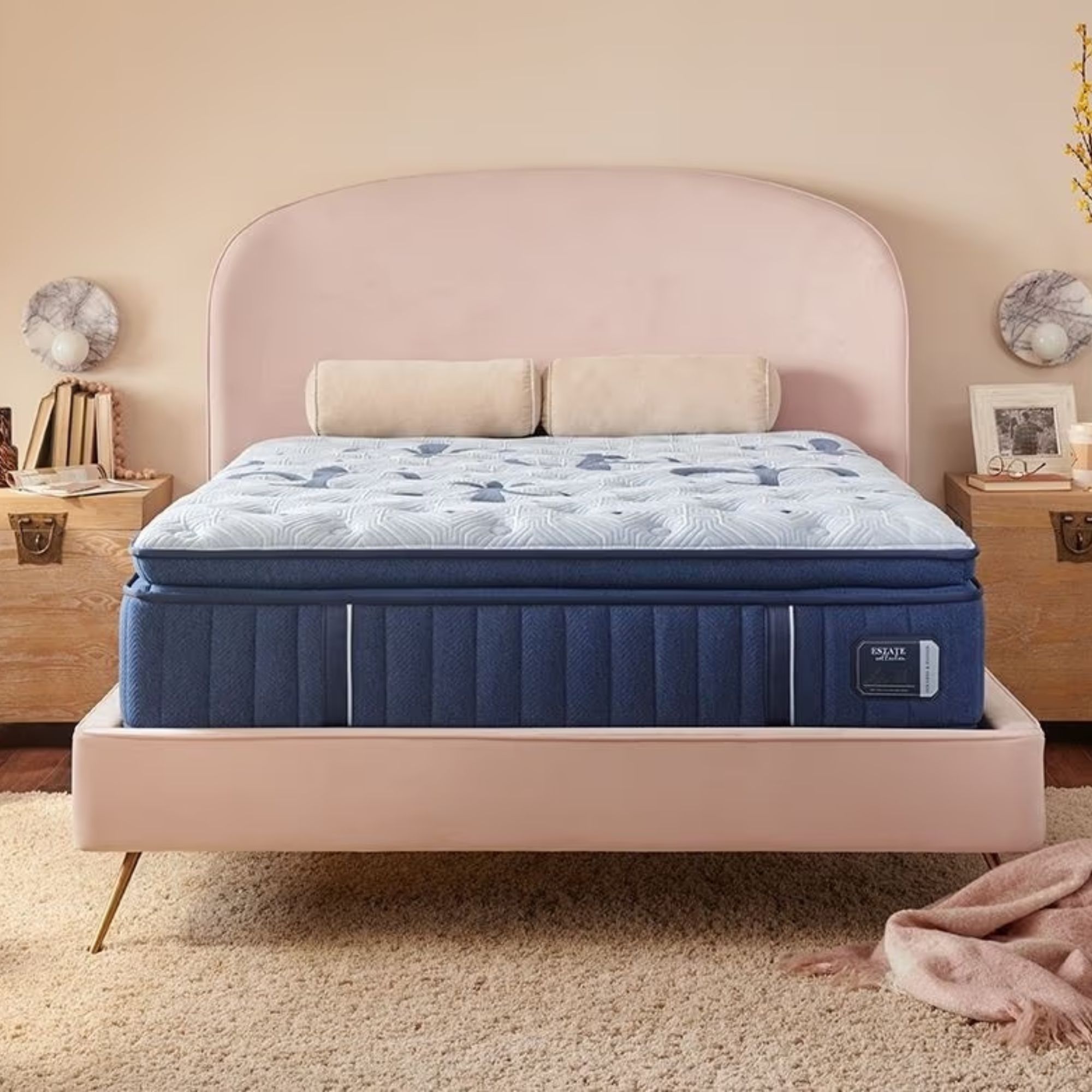
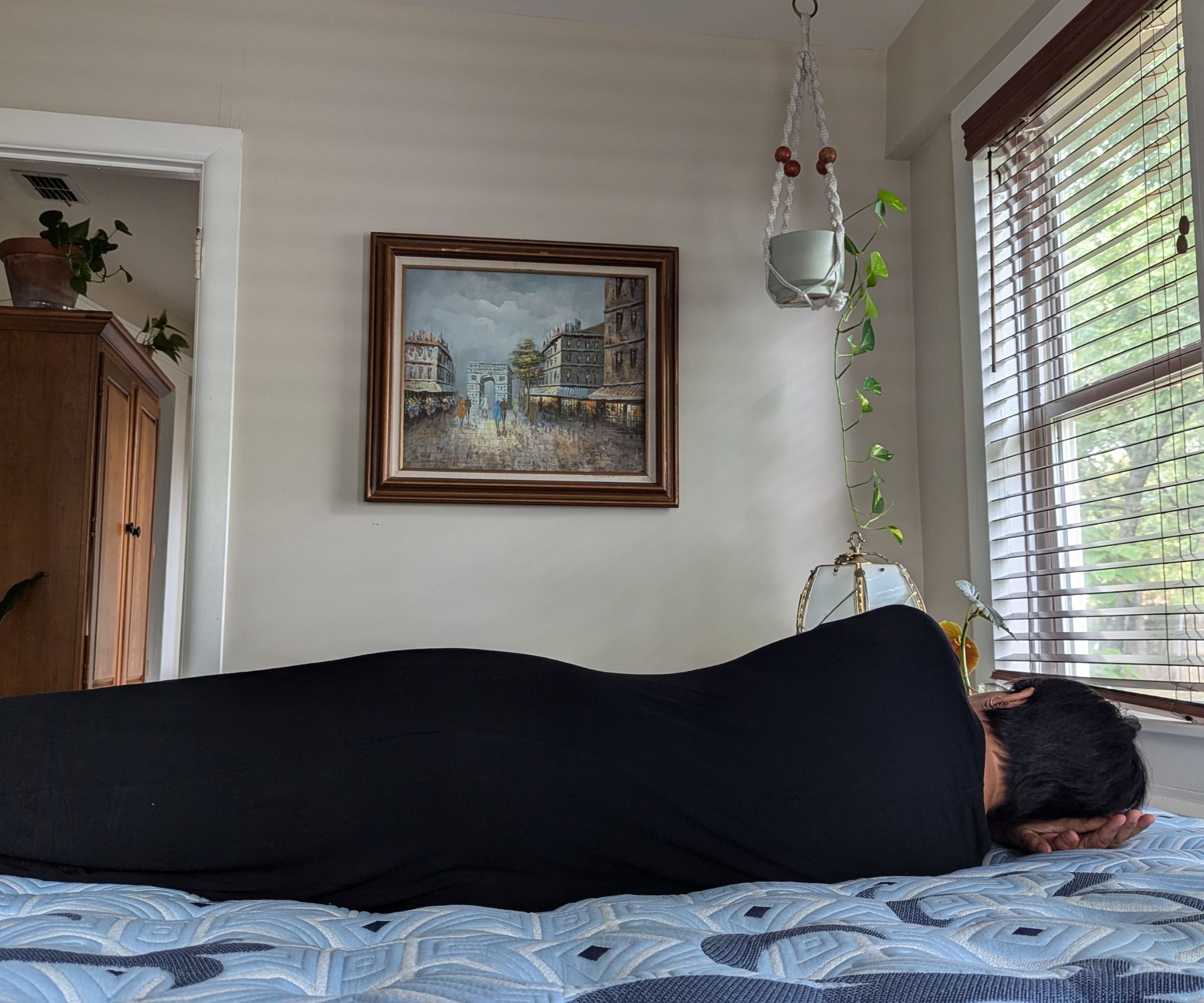
9. Stearns & Foster Estate Mattress
Firm support and enhanced breathability for front sleepers
Price: $1,899 - $4,598 | Firmness: Firm, Medium, Soft, Pillow Top Firm, Pillow Top Soft | Type: Hybrid | Sizes: Twin Long, Full, Queen, King, Split King, California King, Split California King | Sleep trial: 90 nights | Warranty: 10 years | Delivery: Complimentary white glove delivery
According to chiropractor Dr. Kevin Lees, stomach sleepers should steer clear of soft surfaces. 'A mattress that feels too soft can add stress to the natural curve in the lower back of a stomach sleeper as the hips and pelvis start to sink beneath the chest and shoulders,' he explains. 'That's when the spine gets thrown out of alignment, putting extra pressure on the neck and shoulders.' To avoid back ache and neck strain, stomach sleepers should opt for the best firm mattress.
The Stearns & Foster Estate Mattress comes in multiple firmness levels to suit different sleep styles. I'd recommend the Firm feel for stomach sleepers. 'The Stearns & Foster Estate Mattress is firm, but not inflexible,' says expert tester Alex Temblador. 'I need a lot of support around my hips to keep my spine straight and avoid any undue lower back aches, and I found that the strategically arranged springs gave me all the support I need, while the memory foam comfort layer enhances pressure relief.'
'In my time testing mattresses, I've struggled to find one with quality edge support,' says Alex. 'Not only is edge support helpful for getting into and out of bed, but it maintains the structural integrity of the mattress and prevents it from dipping if you sleep too close to the edge. When I sat down on the side of the Stearns & Foster Estate Mattress, it barely dipped beneath my weight. I felt very well supported. I was also impressed with the motion isolation: I couldn't feel a thing when my partner changed positions on the mattress.'
'Despite being a hybrid mattress with external air vents to boost breathability, I felt that the thermoregulation was lacking,' complains Alex. 'If you're a hot sleeper, searching for a cooling mattress with a similar look and feel to the Stearns & Foster Estate Mattress, I suggest the Woolroom Hebridean 3000 Mattress.'
Read the full review: Stearns & Foster Estate Mattress
Attribute | Notes | Score (out of 5) |
|---|---|---|
Pressure relief | Multiple firmness levels to suit different sleep styles | 5 |
Thermo-regulation | Less suitable for hot sleepers | 3 |
Motion isolation | Minimal motion transfer | 5 |
Edge support | Comfortable to sit or sleep on the side of the bed | 5 |

Alex is a prolific product tester, with three mattress reviews under her belt. As a combination sleeper, who flips between her stomach, back, and sides, Alex needs a mattress that feels supportive all over.
Best Mattresses – Compared
| Header Cell - Column 0 | Price | Firmness | Thickness | Type | Sizes | Sleep trial | Warranty | Delivery |
|---|---|---|---|---|---|---|---|---|
Saatva Classic | $1,395 - $2,640 | Plush Soft, Luxury Firm, Firm | 11.5", 14" | Innerspring | Twin, Twin XL, Full, Queen, King, Split King, California King, Split California King | 365 nights | Lifetime | Free in-room delivery and setup, plus free mattress and foundation removal |
Nectar Memory Foam | $349 - $2,121 | Medium-firm | 12" | Memory foam | Twin, Twin XL, Full, Queen, King, California King, Split King | 365 nights | Lifetime | Free shipping and returns |
Tempur-Pedic ProAdapt | $2,899 - $5,798 | Soft, Medium, Medium Hybrid, Firm | 12" | Hybrid | Twin, Twin Long, Full, Queen, King, Split King, California King, Split California King | 90 nights | 10 years | Free white glove delivery |
Emma Original | $549 - $1,919 | Medium-firm | 10" | Memory foam | Twin, Twin XL, Full, Queen, King, California King | 365 nights | 10 years | Free shipping |
DreamCloud Luxury Hybrid | $419 - $2,326 | Medium-firm | 14" | Hybrid | Twin, Twin XL, Full, Queen, King, California King | 365 nights | Lifetime | Free shipping and returns |
Saatva Latex Hybrid | $1,224 - $2,424 | Medium | 12" | Latex hybrid | Twin, Twin XL, Full, Queen, King, California King, Split King, Split California King | 365 nights | Lifetime | Free in-room delivery and setup, plus free mattress and foundation removal |
Brooklyn Bedding Aurora Luxe Cooling | $839.30 - $1,865.50 | Soft, Medium, Firm | 13.25" | Hybrid | Twin, Twin XL, Full, Queen, King, California King, Split California King, Short Queen, RV King, RV Bunk | 120 nights | 10 years | Free shipping |
Siena Memory Foam | $199 -$499 | Medium-firm | 10" | Memory foam | Twin, Twin XL, Full, Queen, King, California King | 180 nights | 10 years | Free shipping and returns |
Naturepedic Chorus | $1,399 - $2,799 | Medium-firm | 10" | Innerspring | Twin, Twin XL, Full, Queen, King, California King | 100 nights | 25 years | Free shipping and returns |
Best Mattress Brands
The best place to buy a mattress is direct from the manufacturer. That way, you're protected by a water-tight warranty, and you can head to one of their mattress showrooms and test mattresses to make sure the one you choose meets your needs.
However, you can shop decent, affordable mattresses at retailers such as Walmart, CostCo and Wayfair (the latter of which sells many of the brands listed below). Of course, it's always worth comparing prices from both brands and retailer at mattress sale times.
These are the best mattress brands in the US, tried, tested and trusted by my expert team:
- Avocado is an eco-luxury mattress brand known for its sustainable approach, using organic latex, organic wool and cotton. We reviewed the Avocado Green Mattress and named it best latex mattress in our best organic mattress buying guide. Made with pocketed coils, it has good cooling, motion isolation, and firm support.
- Brooklyn Bedding offers high-quality mattresses, rated for couples and hot sleepers, all at competitive prices, making it a strong pick for our list. We've chosen the Aurora Luxe Cooling Mattress as our best hybrid mattress, but we also like the Signature Hybrid.
- Casper has fairly recently updated its offering, so if you're a brand-fan like us struggling to recognize your old favorites (though currently not on our list) under their new names, the One Foam Mattress corresponds to the Casper Original: an affordable mattress with breathable, flexible foam. The Dream Hybrid is the new iteration of the Original Hybrid, combining the plush comfort of memory foam with the support of an innerspring. Hot sleepers should stick to the Snow collection. If you've got some cash to spare, and you'd like to spend it on the best cooling mattress, you could upgrade to the Snow Max.
- Dreamcloud is a box mattress brand, with a solid offering of hybrid and memory foam models, including cooling mattresses. Sleep trials are generous: 365-nights at home trial, and they offer a “Forever” or lifetime warranty. We've chosen the Dreamcloud Luxe Hybrid as our choice of best box mattress.
- Emma is the mattress brand to head to to get a memory foam mattress for less. Though not on our top 9 list currently, quality plus affordability can be counted on: there always seems to be an Emma mattress sale on, so you could save hundreds of dollars on mattresses, bedding, and bed frames throughout the year. Whenever you shop, you can take advantage of free delivery and returns, a 10-year warranty, and a 365-night sleep trial. That means you can test your mattress through all four seasons, in heat waves and cold snaps. If you still aren't satisfied once your year is up, you could get your money back.
- Helix: If you're the sort of person that loves smart bedroom tech, and you want to learn more about sleep science, then you'll find a lot to like at Helix. Their website is filled with references to sleep studies and endorsements from sleep scientists, explained in simple English that anyone can understand. Ordinary people love Helix, too: their mattresses boast tens of thousands of five-star reviews online. Helix are also the brains behind Birch Living, the luxury sleep store that makes natural and organic sleep products.
- Mattress Firm is the number-one mattress retailer for America's top brands. You'll find the best luxury mattresses, including Tempur and Sealy models, listed for less, alongside more affordable options. Each mattress comes with an extended sleep trial, as well as a low-price guarantee: if you find the same model listed for less at a reputable retailer within 120 days, Mattress Firm will refund the difference. I recommend taking the MattressMatcher quiz before you start. All you need to do is answer a few simple questions about your sleep style, and Mattress Firm will find the right fit for you.
- Nectar makes eight mattresses − four memory foam (Nectar's memory foam mattress is our top mattress for back pain) and four hybrid models − as well as bed frames, pillows, and bedding. If you're moving house or you're renovating your entire bedroom, I recommend a Nectar Bundle. We have extensively compared Nectar mattresses to other brands mattresses: you can read them here: Nectar vs Tempur; Nectar vs Helix; Nectar vs Casper; Nectar vs Layla; Nectar vs Nolah; Nectar vs Saatva.
- Nolah is known for its breathable AirFoam memory-foam mattresses, aimed at delivering cushioning without overheating. We reviewed the Nolah Original Mattress, praising its near-perfect pressure relief and excellent motion isolation.
- PlushBeds makes the best organic mattresses. If you're keen to shop sustainably, or you'd prefer to purchase vegan products, I recommend starting your search here. The PlushBeds range includes organic latex mattresses and luxury pillowtop models, as well as kids' mattresses and even mattresses for sleeper sofas or RVs. With so much choice, it can be difficult to know where to start. I recommend clicking the link to 'compare PlushBeds mattresses', which outlines the pros and cons of each piece.
- Saatva, which makes our top pick, plus two others on our top 9 list, sells luxury mattresses at a price everyone can afford (you can check out our latest deal picks on our Saatva mattress deals page. When you factor in their 365-night sleep trials, lifetime warranties, and free delivery, setup, and removal system, you're actually saving money when you shop with Saatva. Each of their mattresses is handmade in the USA, cutting down on shipping costs to incorporate homegrown materials. If you like the look of Saatva, you could kit out your linen closet with Saatva bedding, which features in our best pillow and best bed sheets buying guides. We have compared Saatva vs Dreamcloud in our separate guide.
- Siena sells budget-friendly mattresses, including memory foam and hybrid models, designed to provide comfort and support without breaking the bank. Siena's memory foam mattress makes our list as best affordable mattress; we liked how it provided good pressure relief and motion isolation. Siena's mattresses come with generous trial periods and warranties.
- Sleep Number is the mattress brand to go to if you value customizable firmness (perhaps you and your partner like different firmnesses); tech features; and responsive support. High-end models offer “smart” adjustments and active cooling. Sleep Number isn't cheap, but you can find the latest deals on our Sleep Number sale page.
- Stearns & Foster makes luxury hybrid mattresses. We picked the Estate mattress as our top pick for stomach sleepers, but since there are multiple firmness options (not to mention cooling technologies), we can confidently recommend this mattress for most sleepers' needs, and this mattress brand to anyone shopping real quality. While they come with a higher price tag, Stearns & Foster are incredibly durable, and backed by a 10-year warranty. Look out for seasonal promotions.
- Tempur-Pedic mattresses are fantastic but expensive. However, this is one of the best mattress brands to spend your budget, if you have it. Tempur-Pedic makes mattresses in collections, so that you can choose the comfort level that works for you. Their dedicated delivery team drops your mattress to your door, sets it up in your room, and removes your old mattress for safe disposal. Each mattress is made with patented TEMPUR materials which work to relieve pressure and minimize motion, so that you can sleep easy.
- Tuft & Needle sells affordable mattresses that prioritize comfort, simplicity, and value. The brand’s Adaptive Foam offers a balanced feel – cushioning without too much sink – making it ideal for most sleep positions and hot sleepers. We’ve tested and rated the Tuft & Needle Original and Mint Mattress, rating both for their cooling comfort and value for money.
- WinkBeds' range of hybrid mattresses are known for their durability, comfort, and support. Their flagship model, the WinkBed, which we've rated as best mattress for side sleepers, comes in multiple firmness levels. WinkBeds offers a 120-night sleep trial and a lifetime warranty, ensuring customer satisfaction.
Honorable Mentions
Over the years, our expert team has tested 30 mattresses. Our top 9 represents the best of the best for comfort, cooling, and cost. Still, I wanted to shout out a few more mattresses that performed well in our tests for your consideration.
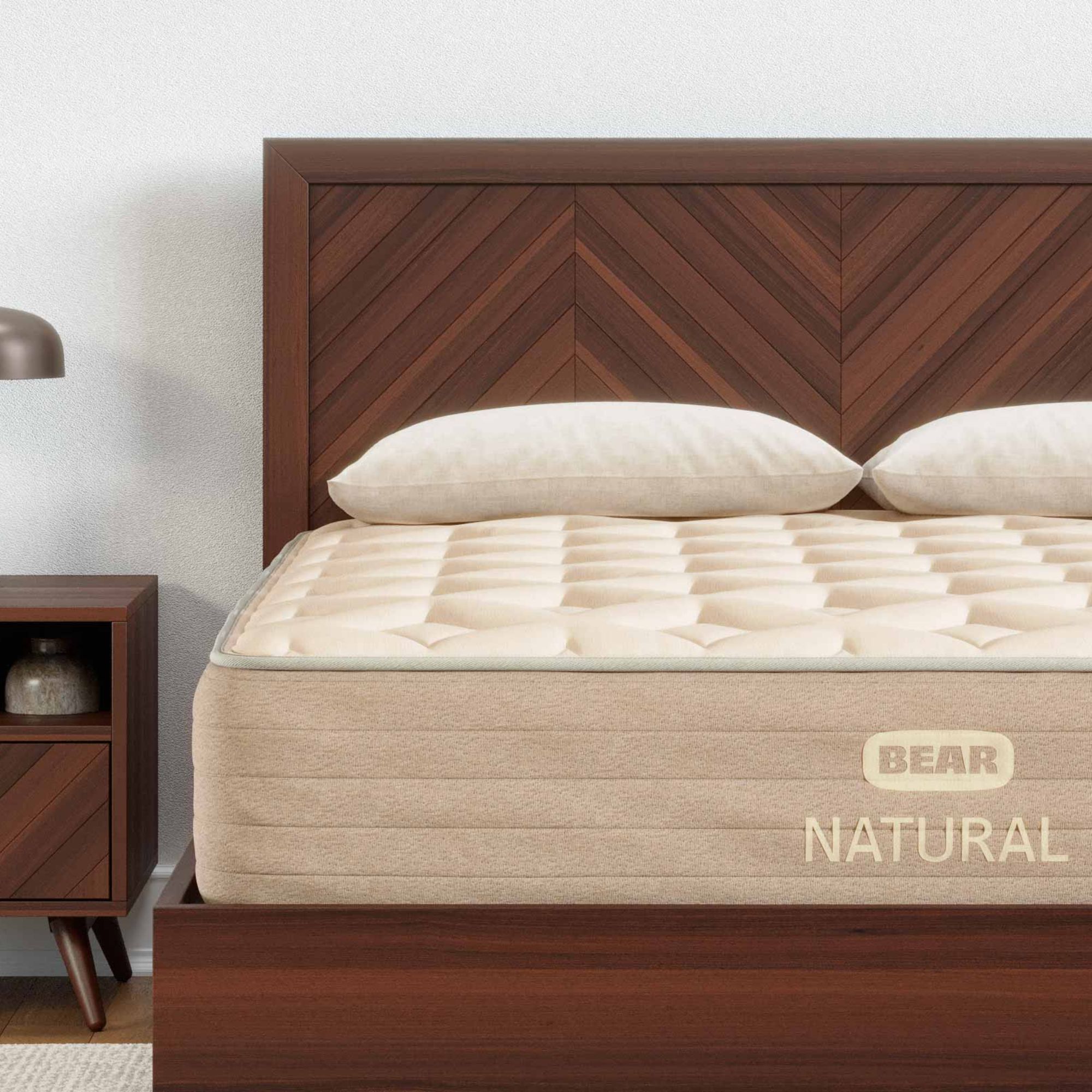
This latex hybrid mattress is breathable and bouncy, with ergonomic zones to target each area of your body with specialized support. Compared to the Bear Elite Hybrid Mattress, there's a little bit of motion transfer, which is why the Bear Natural didn't quite qualify as the best hybrid mattress.
You can find more detail in our Bear Natural Mattress review.
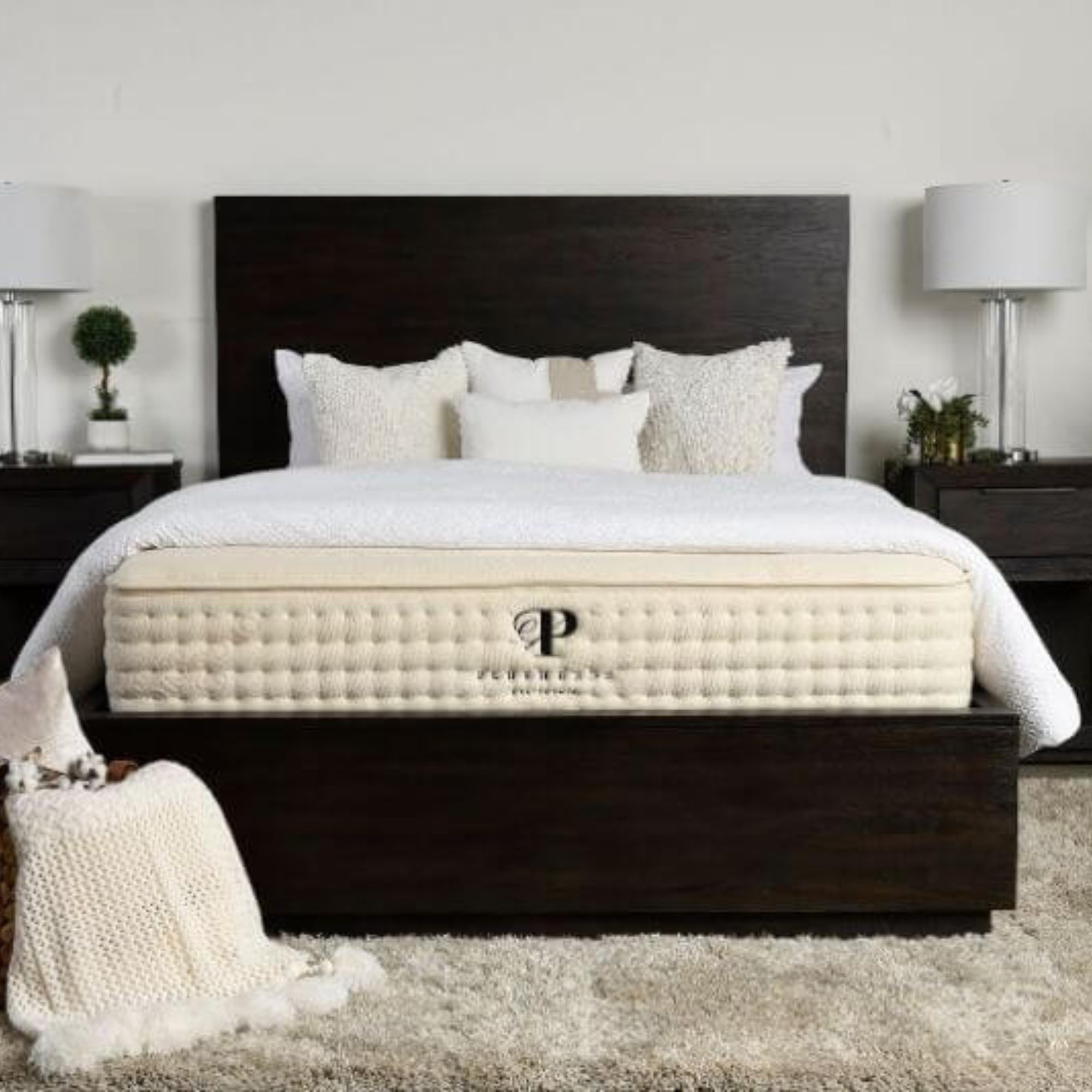
We think this is the best organic mattress on the market. The PlushBeds Botanical Bliss is handcrafted in California, filled with organic latex and topped with organic wool and cotton. There are two big reasons why it didn't make our top 9 − it's very expensive, and it arrives in two boxes, so you have to slot a latex layer into the mattress base.
You can find more detail in our PlushBeds Botanical Bliss Organic Latex Mattress review.
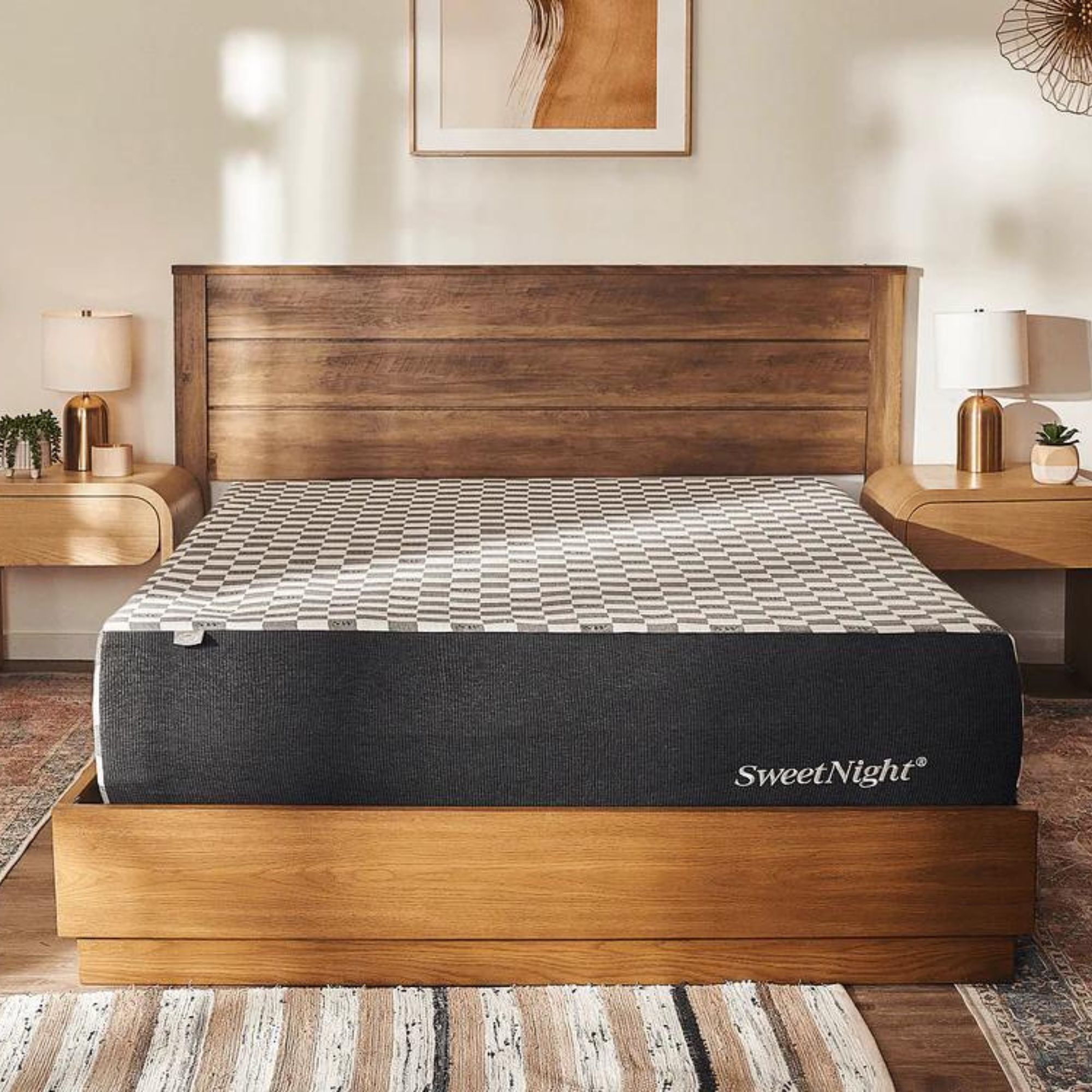
This flippable mattress features four firmness profiles: it's great for couples who share a bed, but not a sleep style. Still, there's a very practical reason why the SweetNight Prime Memory Foam Mattress didn't make our top 9 – it only comes in sizes Twin, Full, Queen, and King, so it won't fit Twin XL or California King bed frames.
You can find more detail in our SweetNight Prime Memory Foam Mattress review.
Mattresses to Avoid
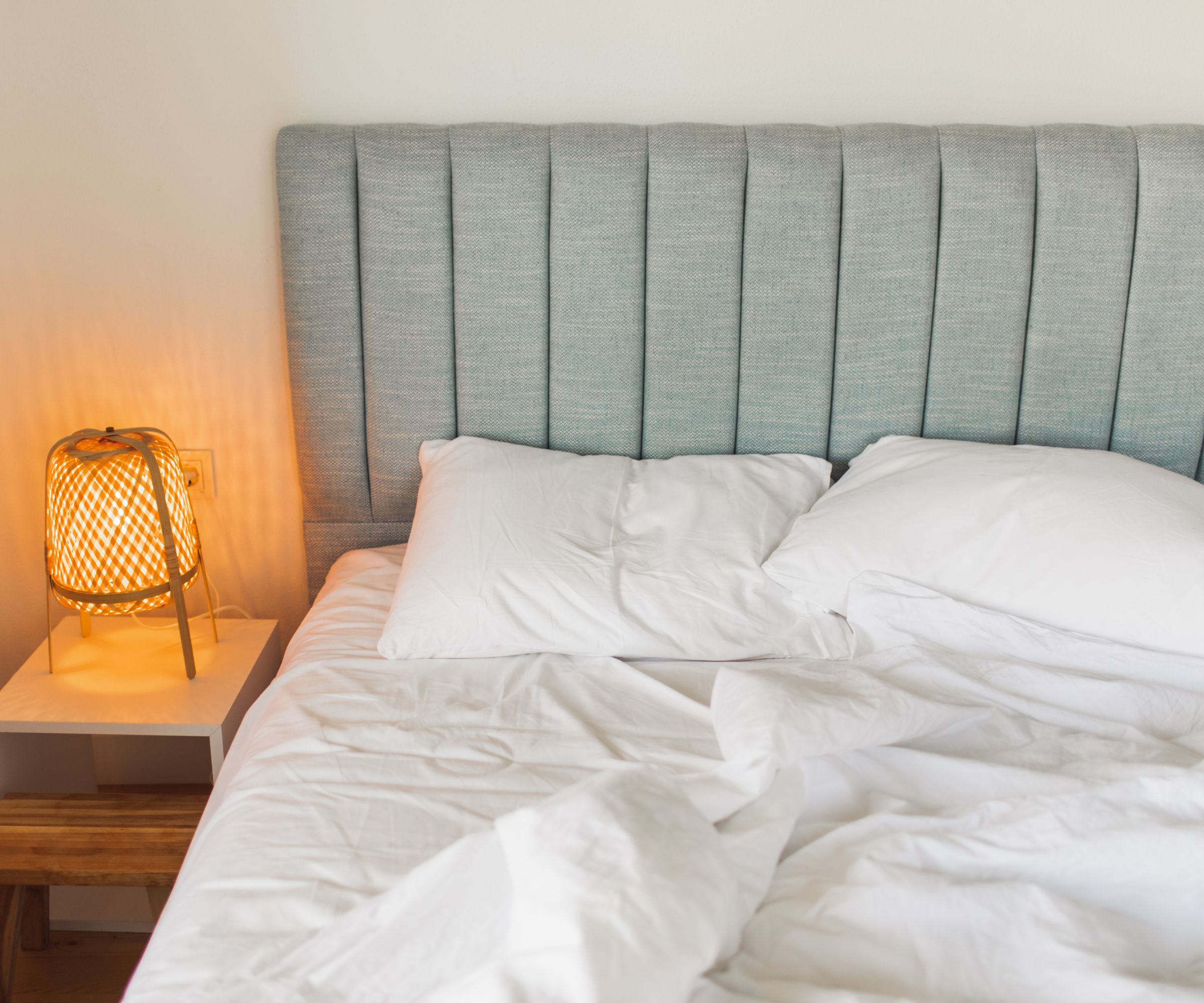
In our search to find the world's best mattress, we've come across a few duds. Some of these mattresses are extremely affordable, and they might feel fine if you aren't too picky. Others overpromised with a high price tag and underperformed in our tests.
- Leesa Original Mattress: this is the entry-level model at Leesa and it shows. The comfort level of cooling foam is only two inches thick and you sink through it all too quickly. I could feel the high-density support foam like a hard block beneath my body. The Leesa Original Mattress is solid in the center but soft around the edges – I couldn't sit on the side of the bed to apply lotion or tie my sneakers, and I certainly wouldn't want to sleep at the edge of the mattress. Leesa makes so many better (albeit more expensive) mattresses − we're currently testing the Leesa Legend Chill Hybrid Mattress and loving it so far.
- Sleep Number c1 Smart Bed: one of our mattress testers had to abort mission halfway through testing the c1 Smart Bed. No matter how much she adjusted the settings and switched up her sleep position, she just couldn't get comfortable. This is by far the most affordable mattress at Sleep Number and perhaps proof that you get what you pay for: some of their other, more expensive models get a much better write-up.
How We Test Mattresses
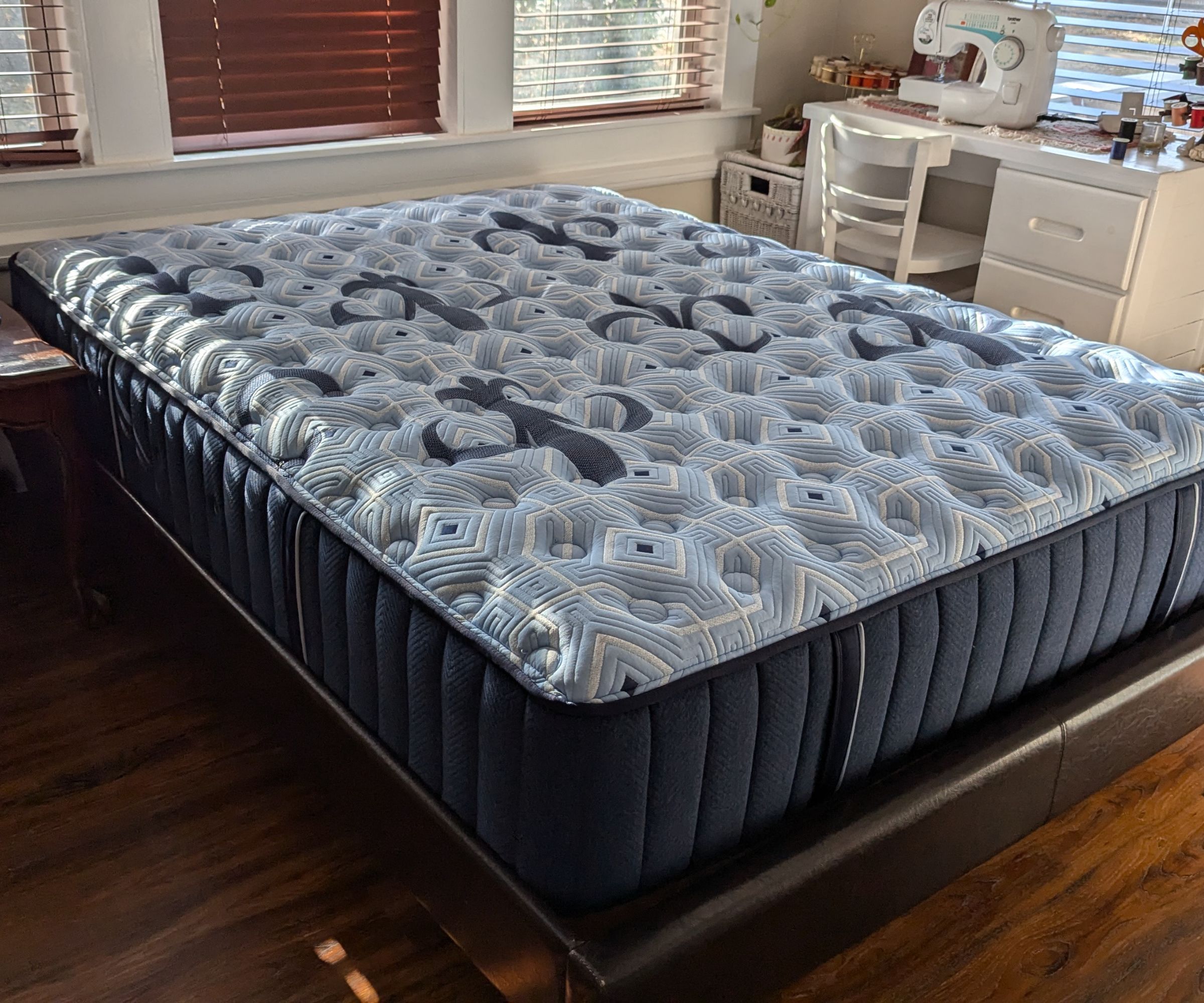
I lead a team of seasoned product testers across America to rank and review mattresses. We test each mattress for at least four weeks before we publish our initial review. This accounts for the time it takes to get used to a new mattress and gives a good indication of future performance. As H&G's resident sleep writer, it's my job to check in with my reviewers after publication and continue to monitor each mattress. If I hear that a mattress is starting to sag, squeak, or lose its quality in any way, I'll remove it from our best mattress buying guide and edit the mattress review to reflect our findings.
For the sake of a fair fight, we assess each mattress against the same criteria: pressure relief; thermoregulation; motion isolation; and edge support. Our mattress review process is editorially independent and not influenced by third parties. To learn more about how we test mattresses, consult our expert guide.
How to Choose a Mattress
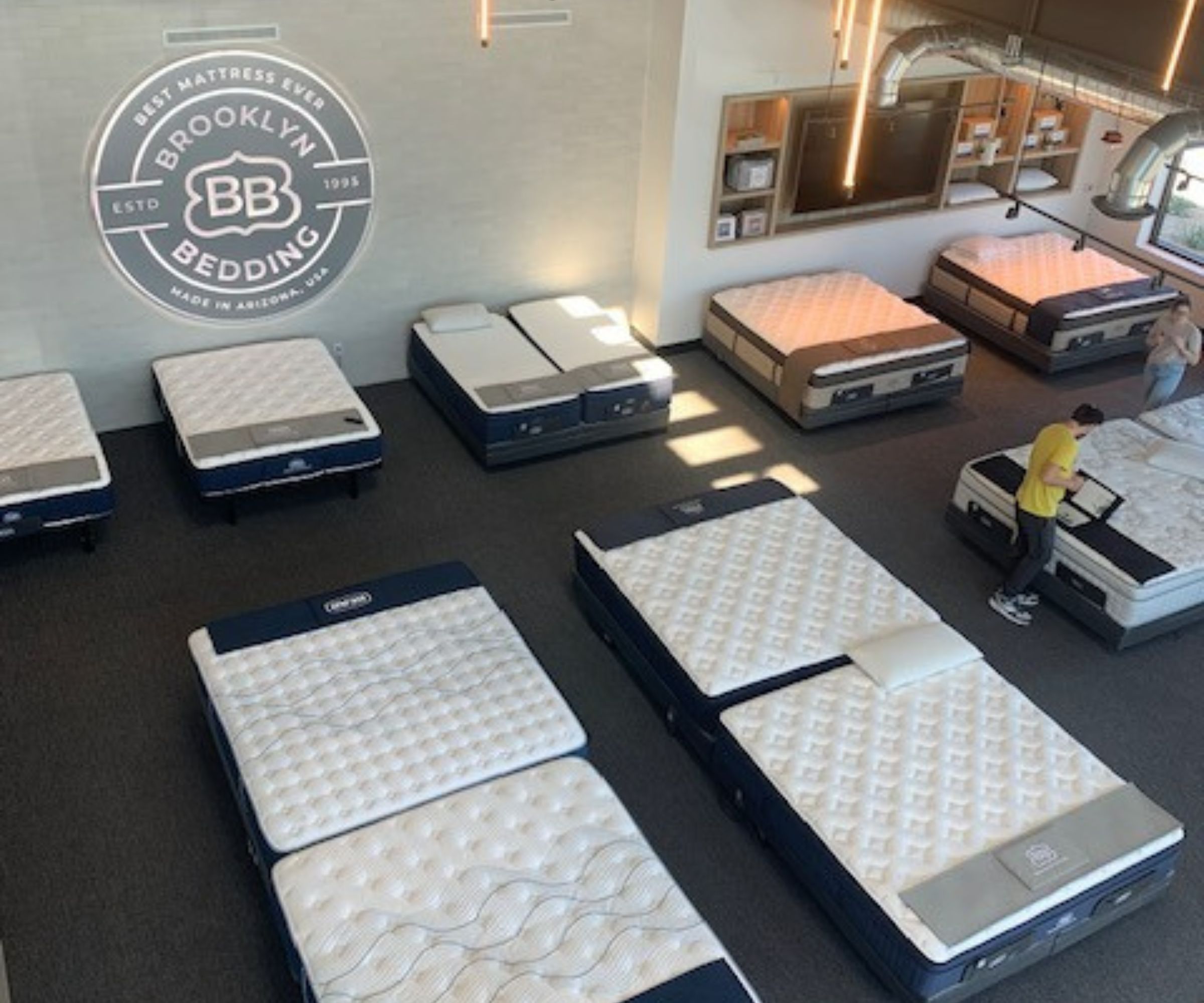
We have a full guide on choosing a mattress to suit you, by which we mean you individually (and, perhaps as part of a couple). It's my strong suggestion that you read this guide before you make your final choice.
In brief, though this is what you need to consider:
Your sleep position vs mattress firmness: In our mattress reviews, we talk a lot about sleep positions and mattress firmness, which are integrally linked, with side sleepers preferring softer mattresses than back sleepers, for instances. Beware though: some mattress manufacturers rate firmness on a scale from 1 to 10, where 1 is super-soft and 10 is ultra-firm. Others categorize their mattresses as soft, medium-soft, medium, medium-firm, or firm, so reading reviews both here and on retailer websites is really important.
Your body weight vs mattress firmness: Like I said, mattress firmness is subjective. Your body weight impacts how soft or firm a mattress might feel to you. Heavier people (250 lbs and up) need a firmer mattress to support their weight, while lighter people might sleep more comfortably on a softer mattress that allows them to sink into the surface.
Heavier sleepers should steer clear of memory foam in favor of a sprung mattress. Scour the specifications in search of high spring counts (2,000 and up) and thicker coils for extra support. Remember to flip or rotate your mattress once a quarter to distribute weight evenly across the surface and prevent excessive sagging in certain areas of the mattress.
Your aches and pains: Whether you suffer from a chronic pain condition or everyday aches, you'll appreciate a mattress with pressure-relieving properties. That might look like a comfort layer of foam to cushion your joints or ergonomic zoning to target support to different areas of your body. Pressure relief becomes especially important as you age and it becomes that much harder to get into and out of bed.
Your sleep temperature: If you're a hot sleeper like me, or you live in a warm climate, then you need the best cooling mattress to dissipate heat, wick moisture, and block odors. I'd recommend a latex mattress, which is naturally breathable, or a hybrid mattress with plenty of air between the coils.
Your partner: All other considerations aside, you should pay special attention to motion isolation. You want to find a mattress with minimal motion transfer so that you aren't disturbed by your partner tossing and turning or getting into and out of bed. Your best bet is a memory foam mattress or a hybrid with a thick layer of foam – coils carry too much bounce.
Your budget: As a general rule, hybrid and latex mattresses are more expensive than memory foam mattresses or innersprings. To get the best mattress in a Queen size, I'd expect to spend anywhere between $600 and $1,800. Before you start mattress shopping, I suggest you set your own lower and upper limit to your budget.
FAQs
When's the best time to buy a mattress?
Financially speaking, the best time to buy a mattress is around a holiday weekend, as stores slash their prices and compete to provide the deepest discounts. As a shopping writer, I reckon you'll find the greatest breadth and depth of mattress deals around Black Friday.
When should I replace an old mattress?
You should replace your mattress roughly every seven years: the exact timeframe varies in accordance with your mattress type. If your mattress shows obvious signs of aging, be it creaking coils or deformed foam, then it's time to think about buying a new mattress.
How does a cooling mattress work and is it worth it?
A cooling hybrid mattress relies on the compression and depression of innerspring coils to optimize airflow and boost breathability. In other words, there is more air in a hybrid mattress than a memory foam mattress, which makes it that much easier to dissipate heat and wick moisture.
With that said, you do get cooling memory foam mattresses, too, although they're few and far between. Thick, dense memory foam tends to trap heat, but gel memory foam does a better job at heat dissipation. When you're shopping for the best cooling mattress, keep an eye out for memory foam models with copper or graphite infusions.
I would suggest a cooling mattress for seriously hot sleepers, as well as anyone who lives in a warmer climate.
If you're buying on a budget, and you can't justify the cost of a cooling mattress, then I would recommend one of the best cooling mattress protectors or the best cooling mattress toppers and pads, instead. Any of these should keep your bed and body cool for a fraction of the price of a new mattress.
If you're a seriously hot sleeper, then you needn't stop at a cooling mattress or topper. The best cooling sheets would lie closer to your skin, keeping you cool from the outside in, while the best cooling comforter is ideal for hot sleepers who still like a layer.
How long does a memory foam mattress last?
According to Alex Frost, a fellow mattress tester at H&G, 'your typical memory foam mattress will last you between six and eight years. After eight years, you can expect to see sagging, indents and impressions. When you're lying on the mattress, you're likely to experience reduced support. The denser the foam, the more durable the bed is likely to be.'
Density matters because lower-density foams degrade more quickly than higher-density foams. Density is measured in pounds per cubic feet. To get a durable memory foam mattress, you're looking for foam to support at least 5 pounds per cubic foot. In layman's terms, higher-density foam feels firmer and more supportive than lower-density foam, which is soft and squishy.
When you're shopping for a memory foam mattress online, take a quick look through the specifications. The most durable memory foam mattresses are founded on high-density polyurethane foam. You're looking for a mattress where the dense base makes up at least half of the total mattress depth.
How can I make a memory foam mattress last longer?
Use the right foundation: unless you're planning to place your mattress on the floor, you need to make sure you've got the best bed frame for your memory foam mattress. I recommend a slatted foundation to boost breathability throughout the mattress − memory foam is known to trap heat.
Rotate it: memory foam is made to mold to the shape of your body. This sort of contouring comfort makes for great pressure relief, but it means that your mattress is likely to develop indents and impressions in certain areas. The best way to distribute pressure evenly across the mattress is to rotate your mattress once or twice a year. That is, unless your memory foam mattress features ergonomic zones – or else you'll miss out on the specialized support.
Use a mattress protector: the easiest way to keep your bed and body clean is to invest in the best mattress protector. Slip one of these lightweight layers between your mattress and your fitted sheet to stop mold, must, and mildew from building up inside your bed. Since memory foam tends to trap heat and moisture, it's even more important to use a mattress protector to bust bacteria.
What is a mattress in a box and are they any good?
A box mattress is just that − a mattress that arrives in a box. This convenient delivery method means that you can buy a mattress and bring it into your home without ever setting foot in a mattress store or showroom. Most box mattresses come with free shipping and free returns to make your shopping experience even easier.
The box mattress was invented to cut down on warehousing costs: the more you compress the mattress, the less space it takes up on the factory floor, and the more mattresses you can store, ready to ship. That's part of the reason why a bed-in-a-box is so much cheaper to produce than a traditional mattress and far more affordable for you as a customer.
I asked Jill Zwarensteyn, a fellow mattress tester and Senior Editor over at Sleep Advisor, what she likes best about box mattresses. She pointed to the practicalities: 'most online mattress brands offer generous mattress sleep trials that give you plenty of time to test the bed at home. That's especially important when you're buying a box mattress online, since you don't get to try it before you buy it'.
What is a hybrid mattress and are they good for back pain?
A hybrid mattress is a multi-layered mattress, comprising spring coils and foam. You might also hear a hybrid referred to as a 'combination mattress', which makes sense: you're combining the best bits of an innerspring mattress and a memory foam model.
Most hybrid mattresses, but not all, are topped with thick layers of memory foam. This molds to the shape of your body and creates that pleasant sinking feeling, while the spring coils work to bear your weight. You can also find hybrid beds that are topped with other materials, from organic latex for eco-friendly pressure relief to organic wool for thermoregulation.
Like all mattress types, hybrid beds come in a range of comfort levels to suit every sort of sleeper. On a scale of Soft to Firm, most hybrid mattresses are sold as Medium or Medium-Firm surfaces: that innerspring core toughens up the soft, supple foam.
Since they strike such a careful balance between comfort and support, hybrid mattresses are suitable for all sleep positions. The foam on top helps to relieve pressure from your joints, while the springs down below work to bear your weight and stop you from sinking too far into the mattress. That's why hybrid mattresses are so good for back pain: they help to maintain the natural alignment of your spine.
Why is my mattress causing back pain?
You should always seek a medical opinion for back pain, but the wrong mattress is often a cause. I spoke to sleep scientists and chiropractors to work out why your mattress might be causing your back pain and what to do about it.
Mattress-induced back pain is always because the firmness and support do not match your sleep style. If you sleep on your side and your mattress is too firm, it may not cushion your joints properly. If it is too soft and you sleep on your front or back, your spine will not be correctly aligned.
'A mattress should provide full body support, keeping the spine neutral,' says Dr. Kevin Lees, Director of Chiropractic Operations at The Joint Chiropractic. 'When a mattress loses support through the wear and tear of nightly use, that can cause sagging in the most worn areas, typically where the largest part of the body lies. When this occurs, you might feel that you are sleeping in a divot or a dip in the mattress. Over time, this might lead to waking up sore, not getting a good night's rest, tossing and turning, and even long-term injuries.'
Christina Heiser (Director of Content at Saatva) concurs. 'A sagging mattress can cause back pain by throwing your spine out of alignment,' she says. If your mattress allows your spine to curve up or down, that's not healthy for blood circulation or resting your muscles. For pain-free nights, the goal is to keep your spine in a neutral position.' That's why it's so important to learn how to fix a sagging mattress to prolong its life.
So if your mattress is worn and unsupportive, buy a medium-firm replacement that cradles you correctly. Also check that you are using the best pillow for your sleep position, as again, this is critical for good spine alignment. If you can't afford a new mattress, try a topper to add cushioning or support (as needed), and you can also try sleeping with a thin pillow under your hips to adjust your spine.
So, the verdict is that the Saatva Classic Mattress is the world's best mattress: it ticks every box for pressure relief, thermoregulation, motion isolation, and edge support. With that said, another one of our top-rated mattresses might better suit your sleep needs and budget constraints. As you shop, make sure to consider your sleep position, your sleep temperature, and any aches and pains to find the mattress that's right for you. If you want to learn more about how a mattress is made, consult our expert explainer.
Design expertise in your inbox – from inspiring decorating ideas and beautiful celebrity homes to practical gardening advice and shopping round-ups.

Emilia is our resident sleep writer. She spends her days tracking down the lowest prices on the best mattresses and bedding and spends her nights testing them out from the comfort of her own home. Emilia leads a team of testers across America to find the best mattress for every sleep style, body type, and budget.
Emilia's quest to learn how to sleep better takes her all around the world, from the 3Z mattress factory in Glendale, Arizona to the Hästens headquarters in Köping, Sweden. She's interviewed luxury bedding designers at Shleep and Pure Parima, as well as the Design Manager at IKEA. Before she joined Homes & Gardens, Emilia studied English at the University of Oxford.